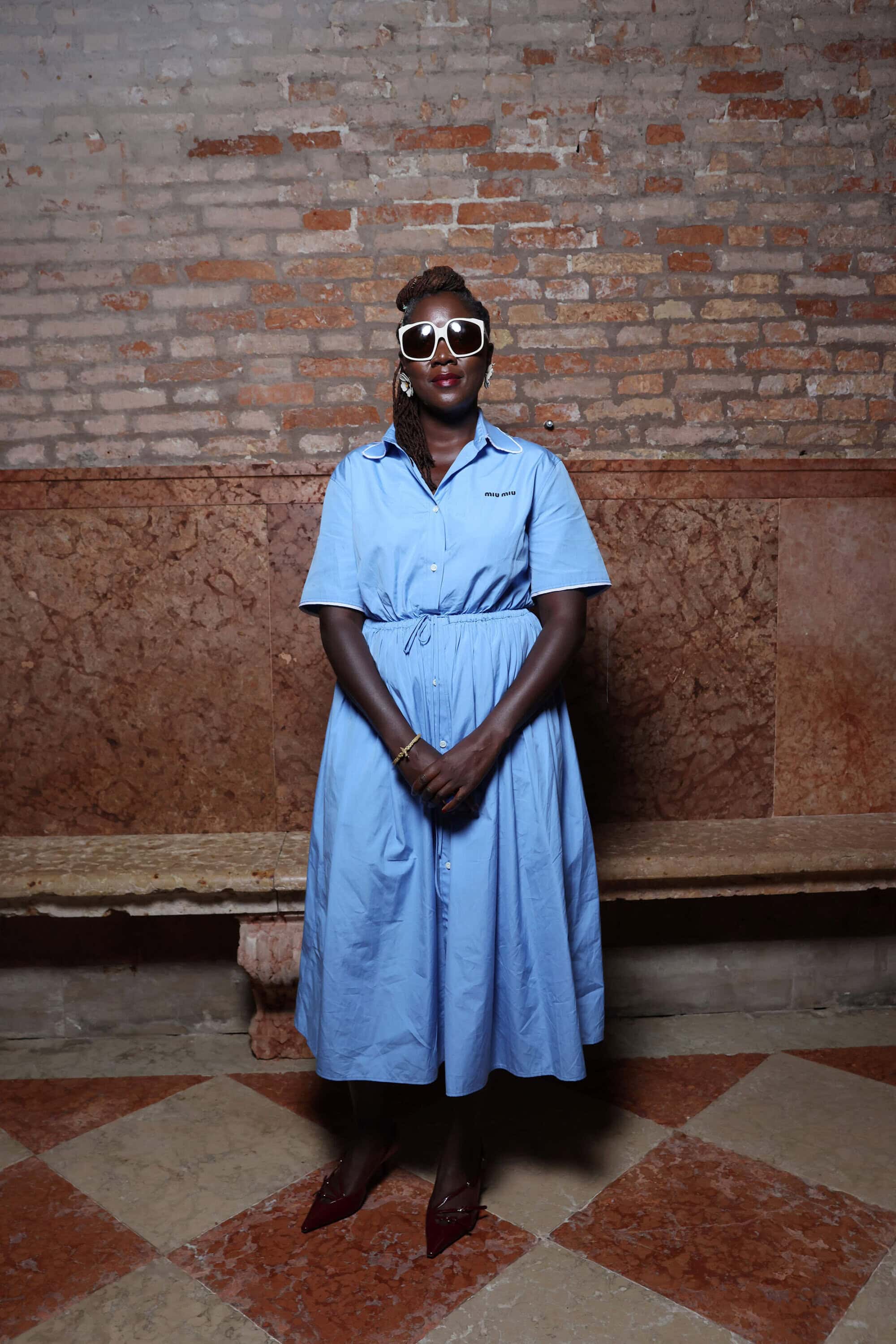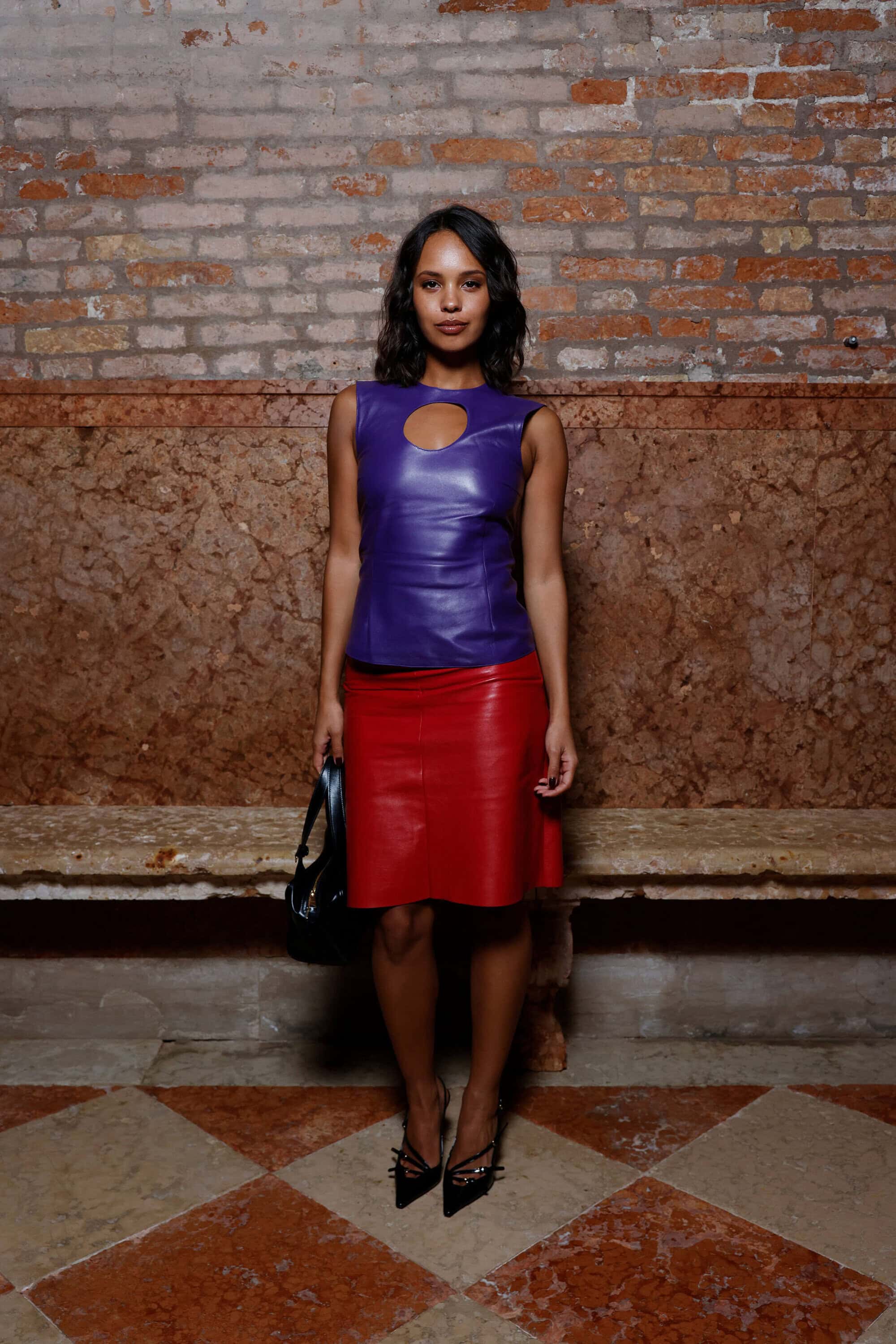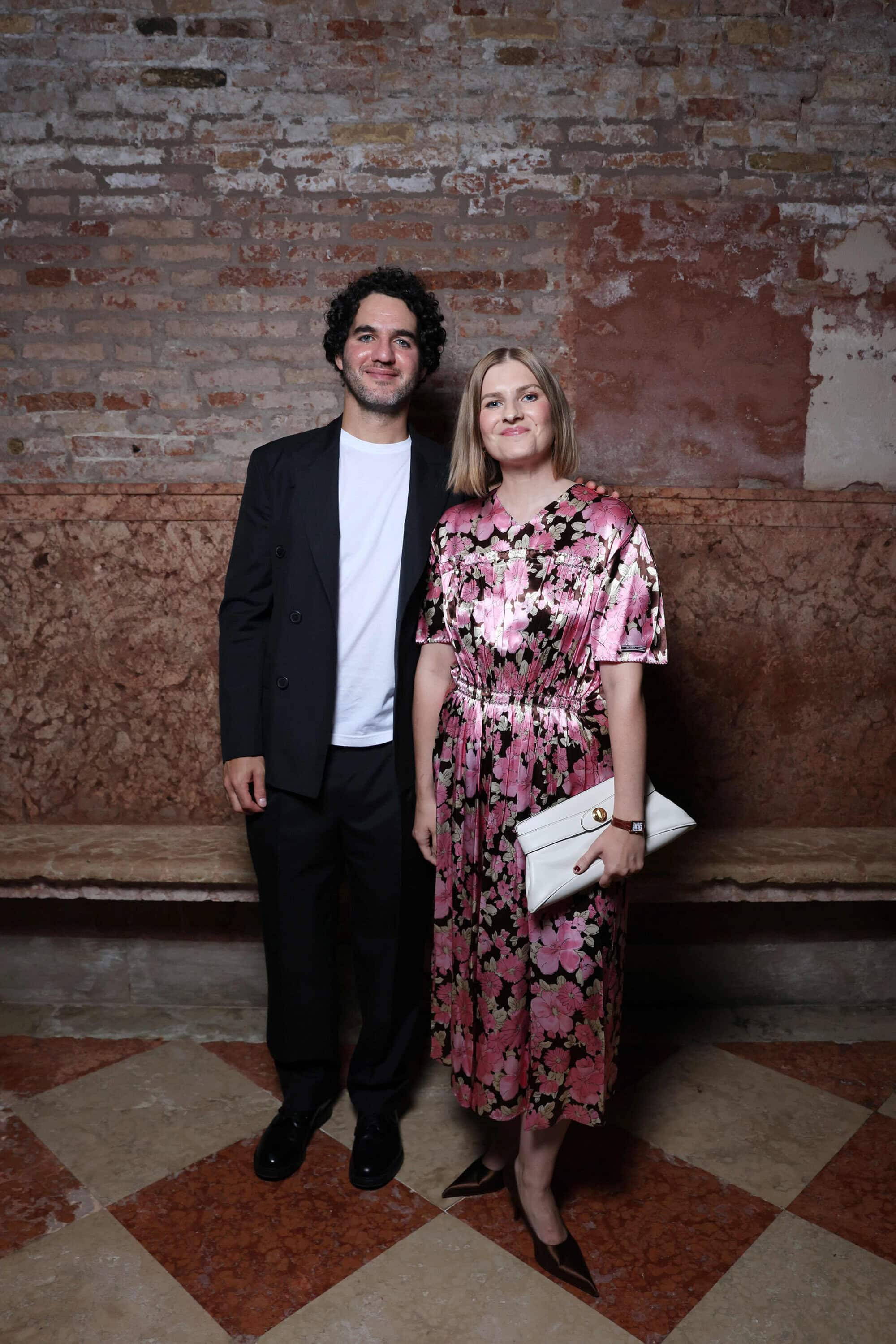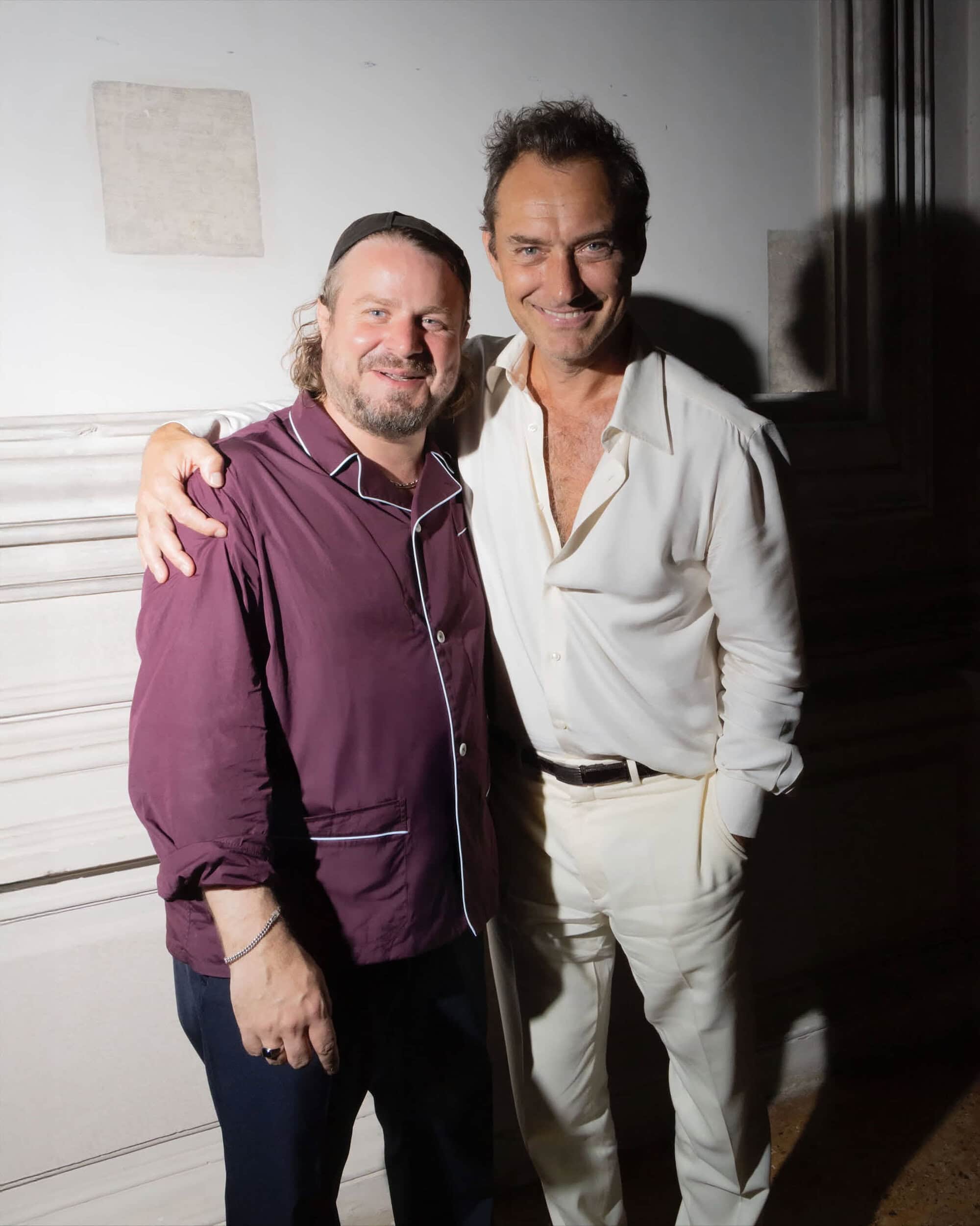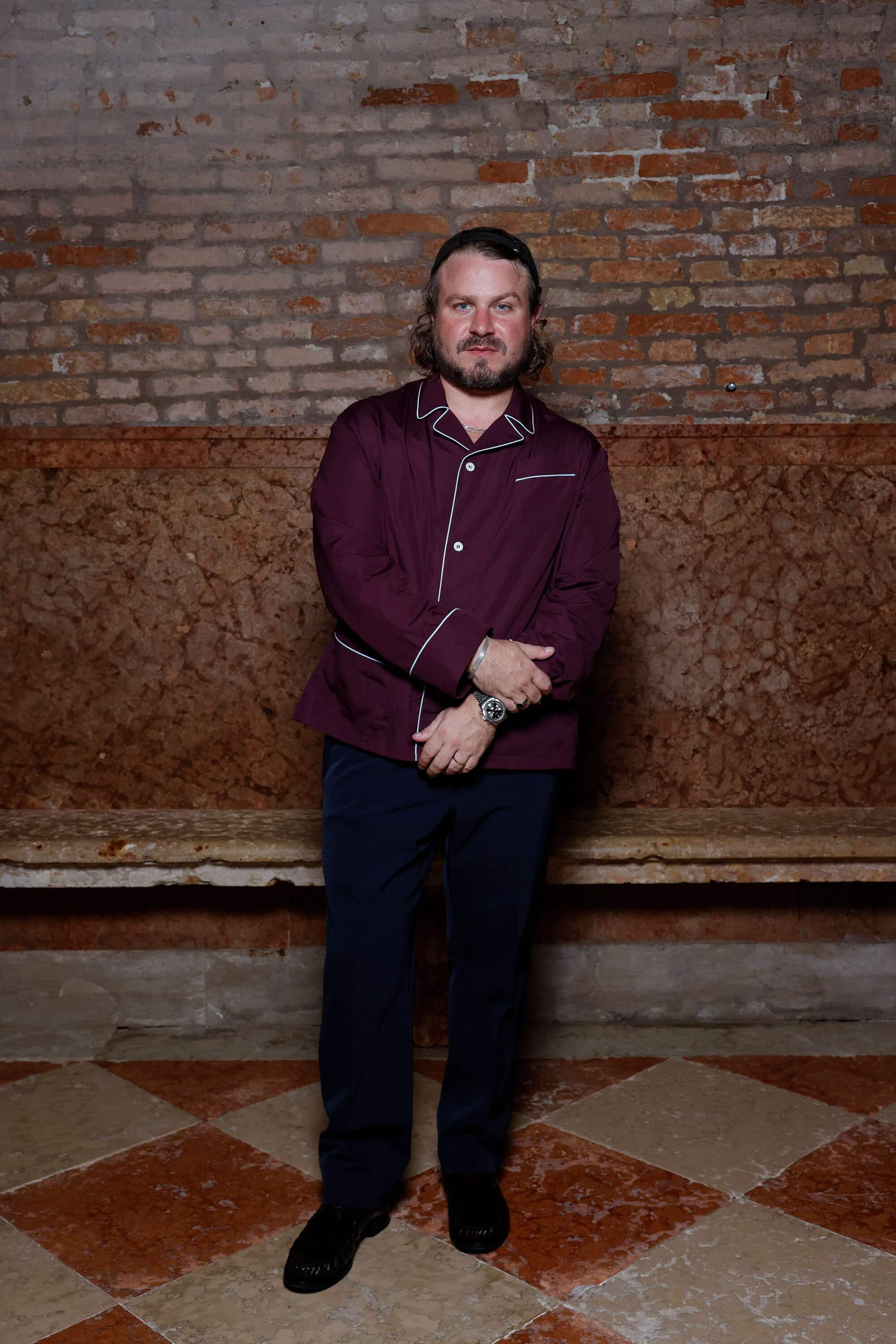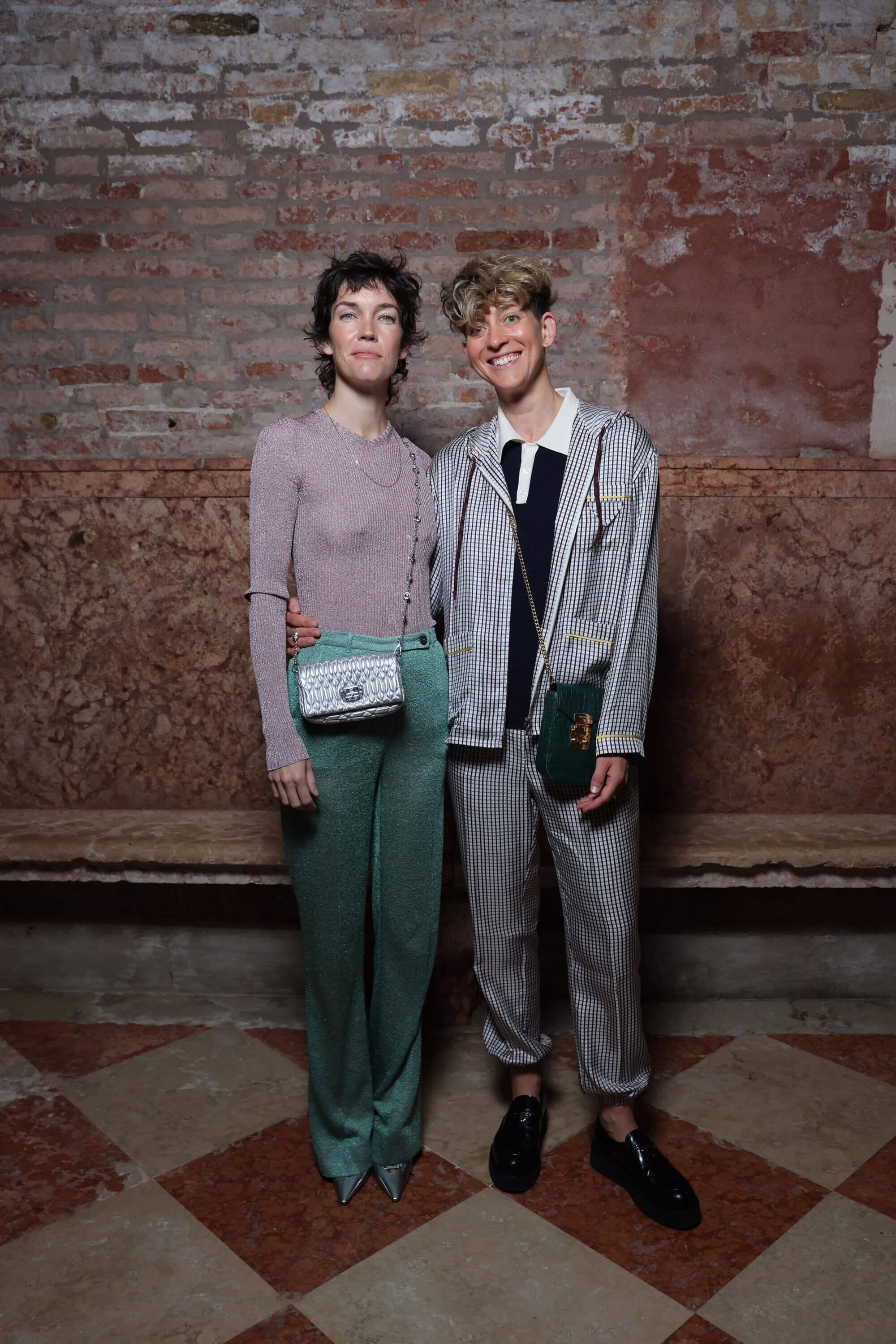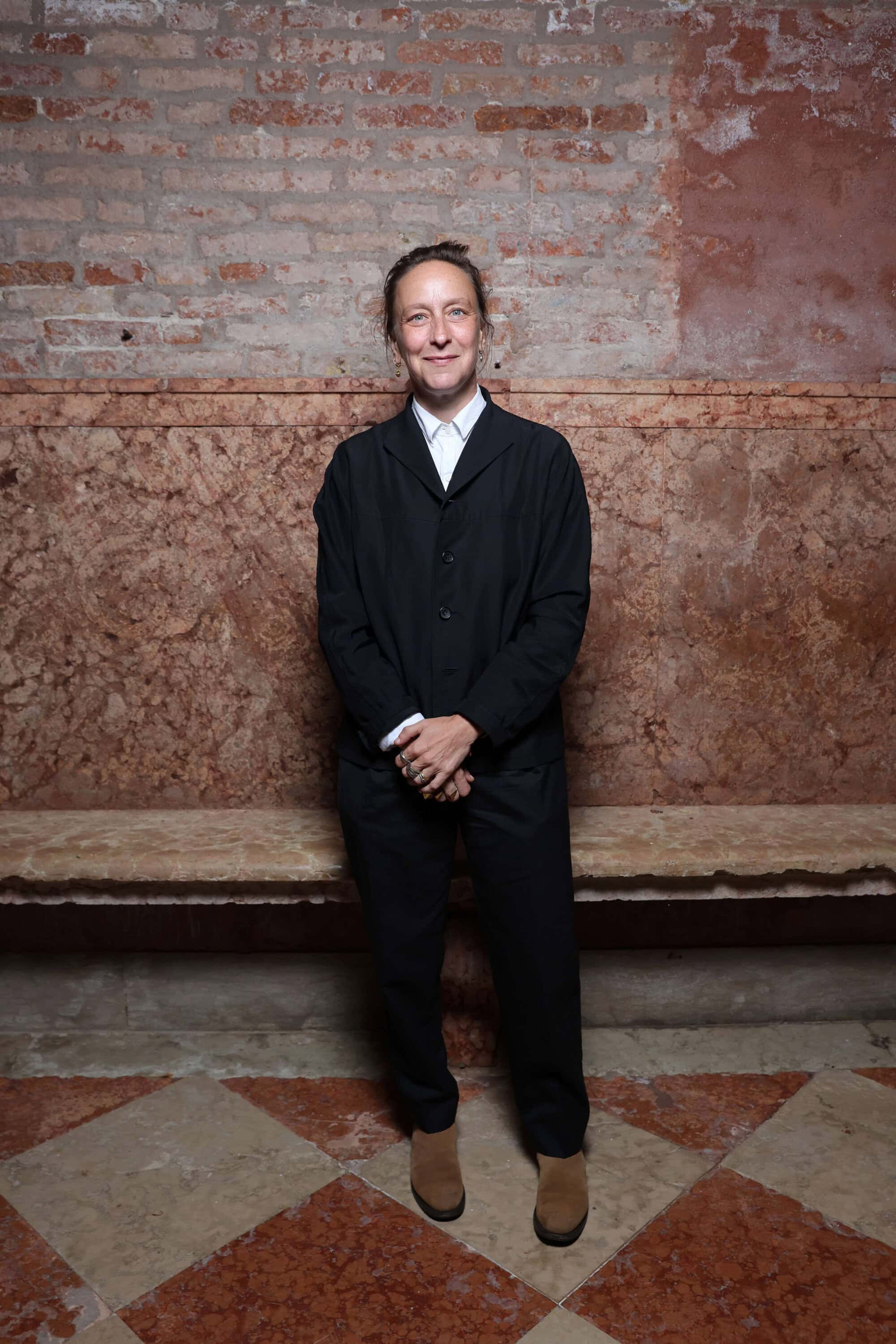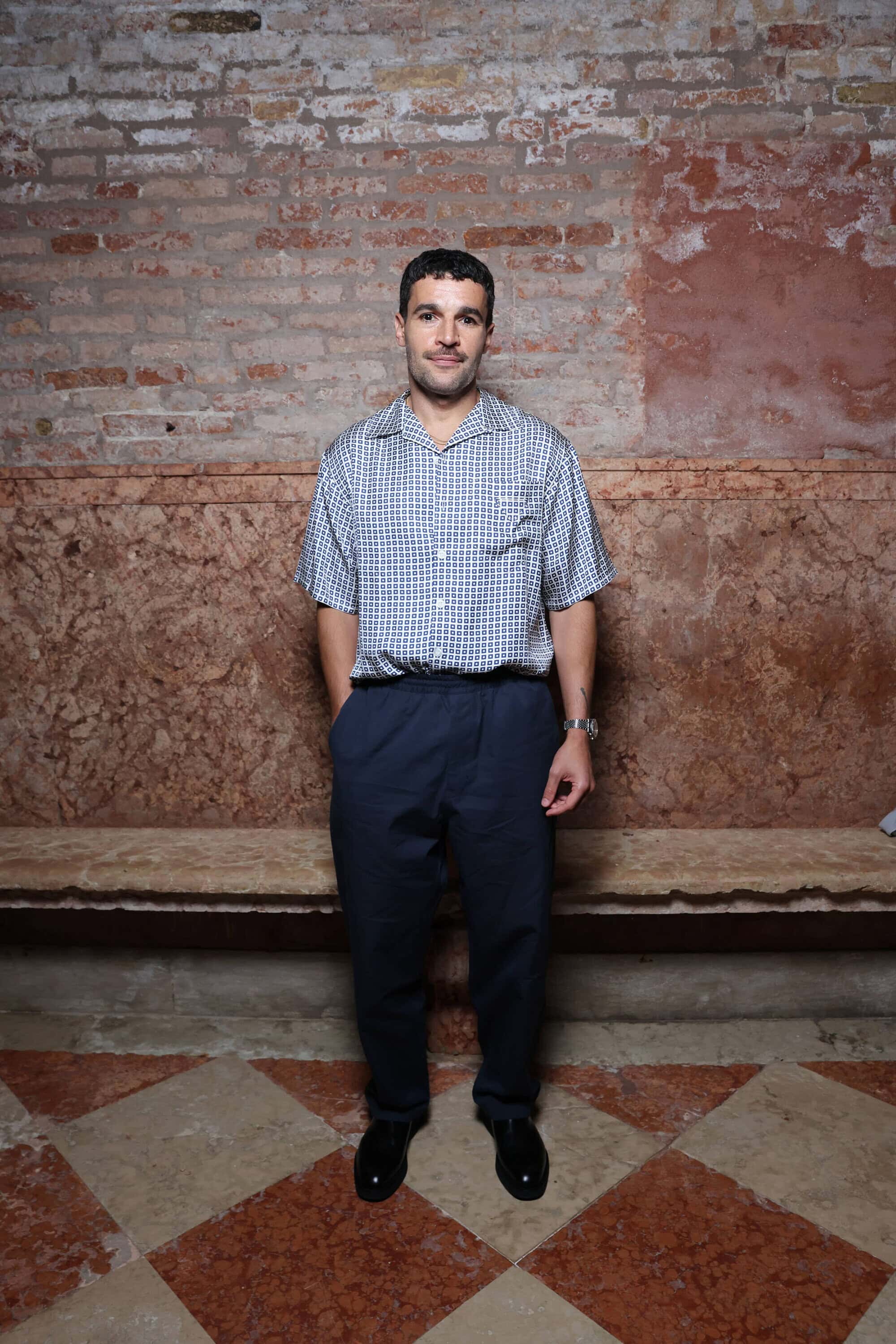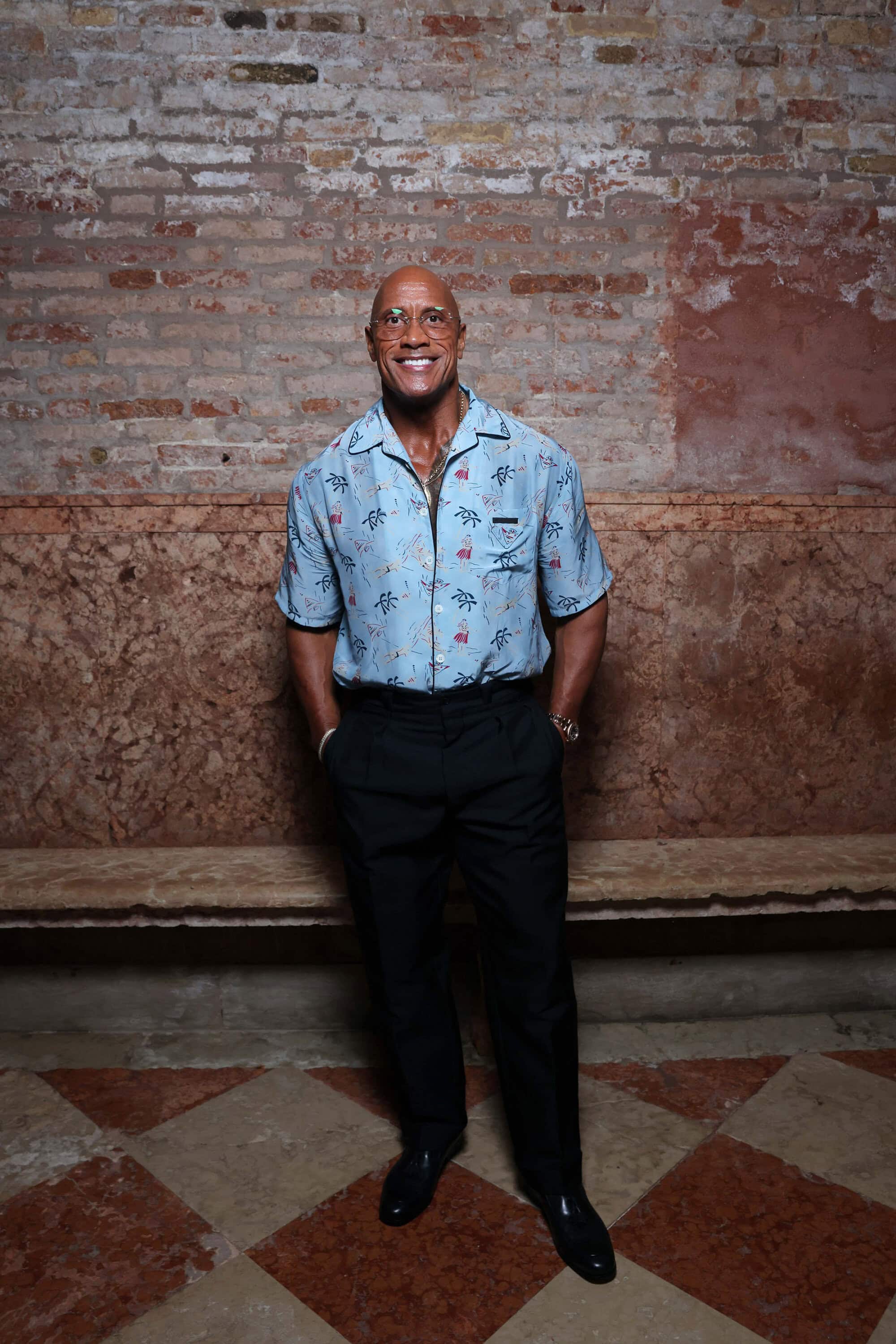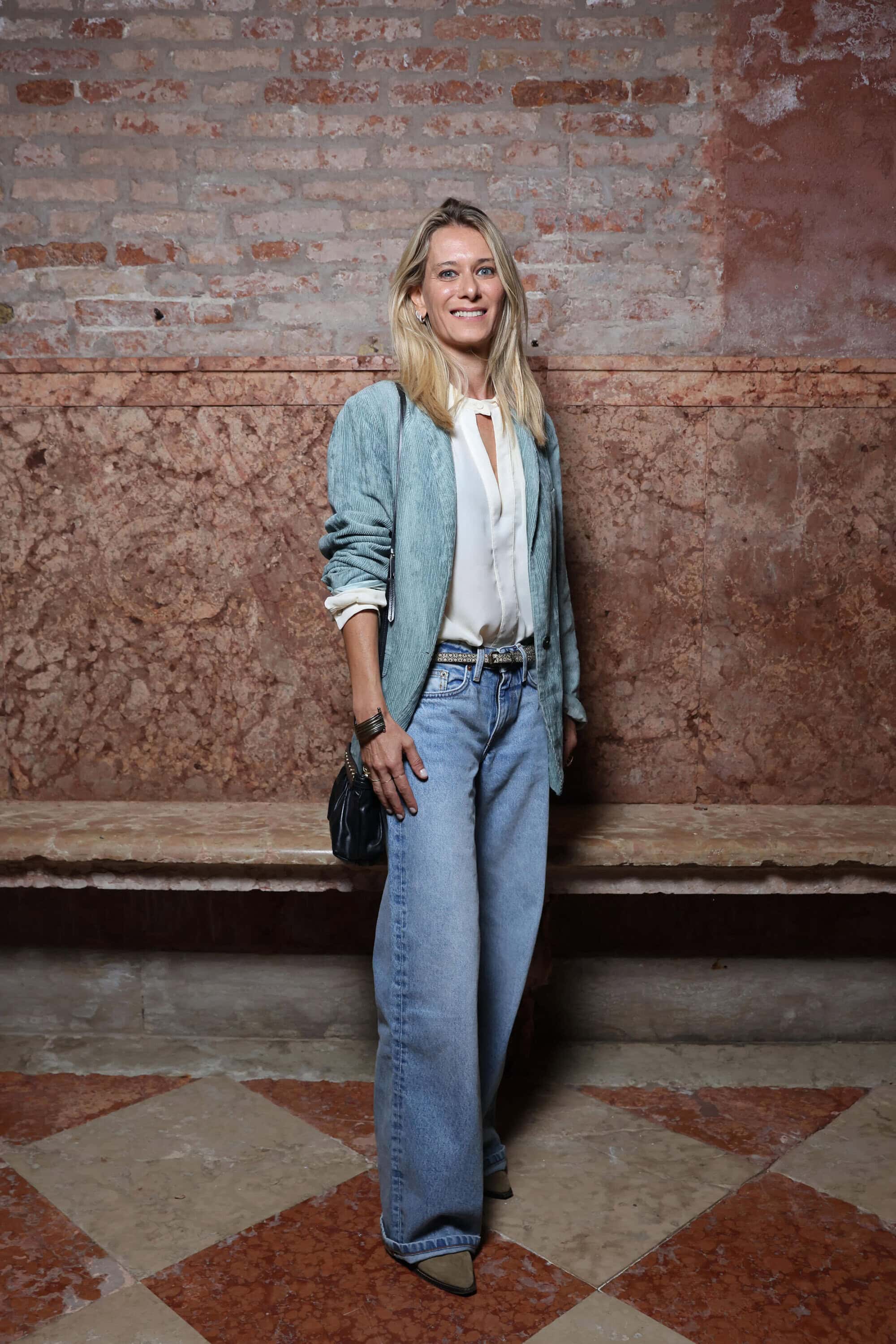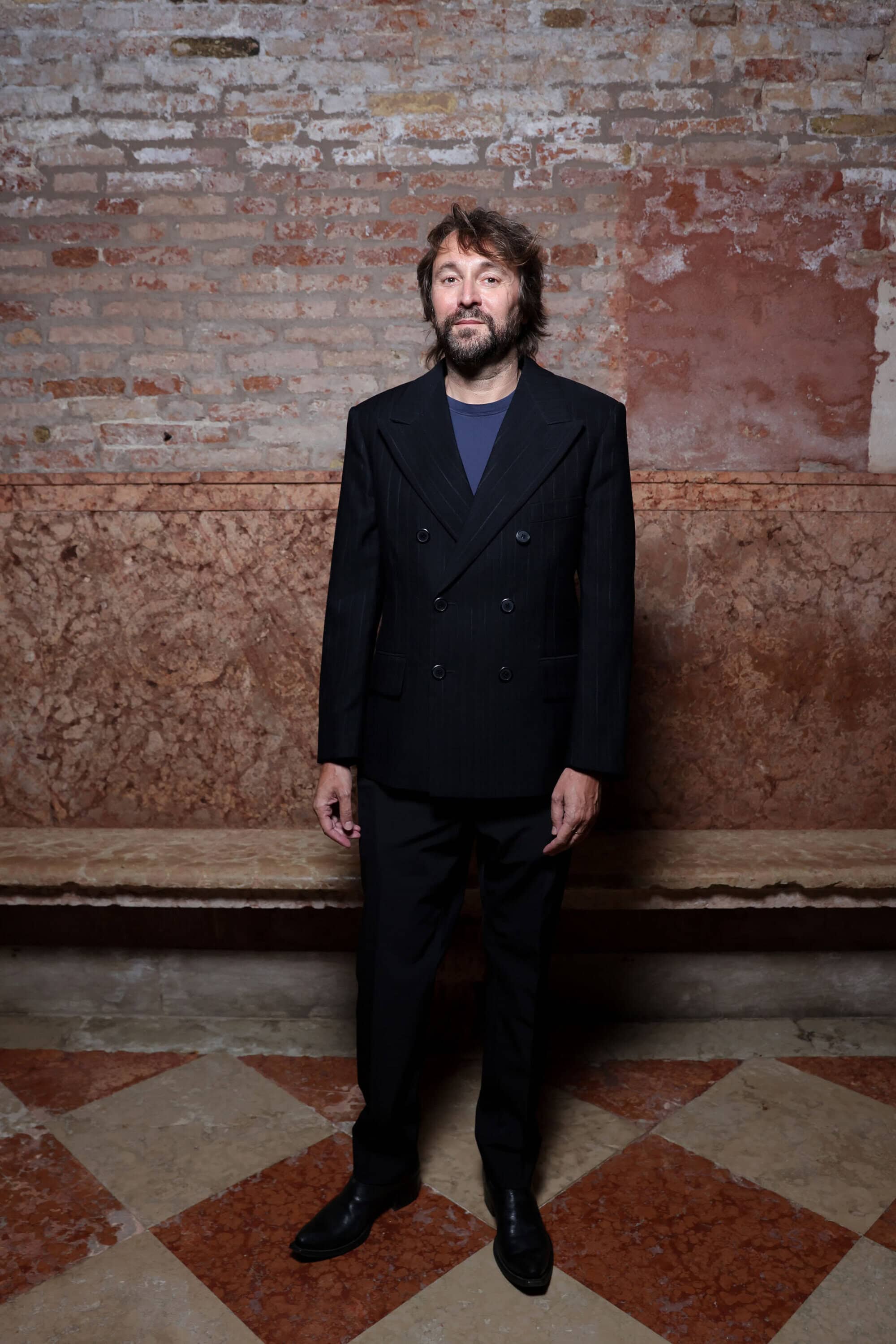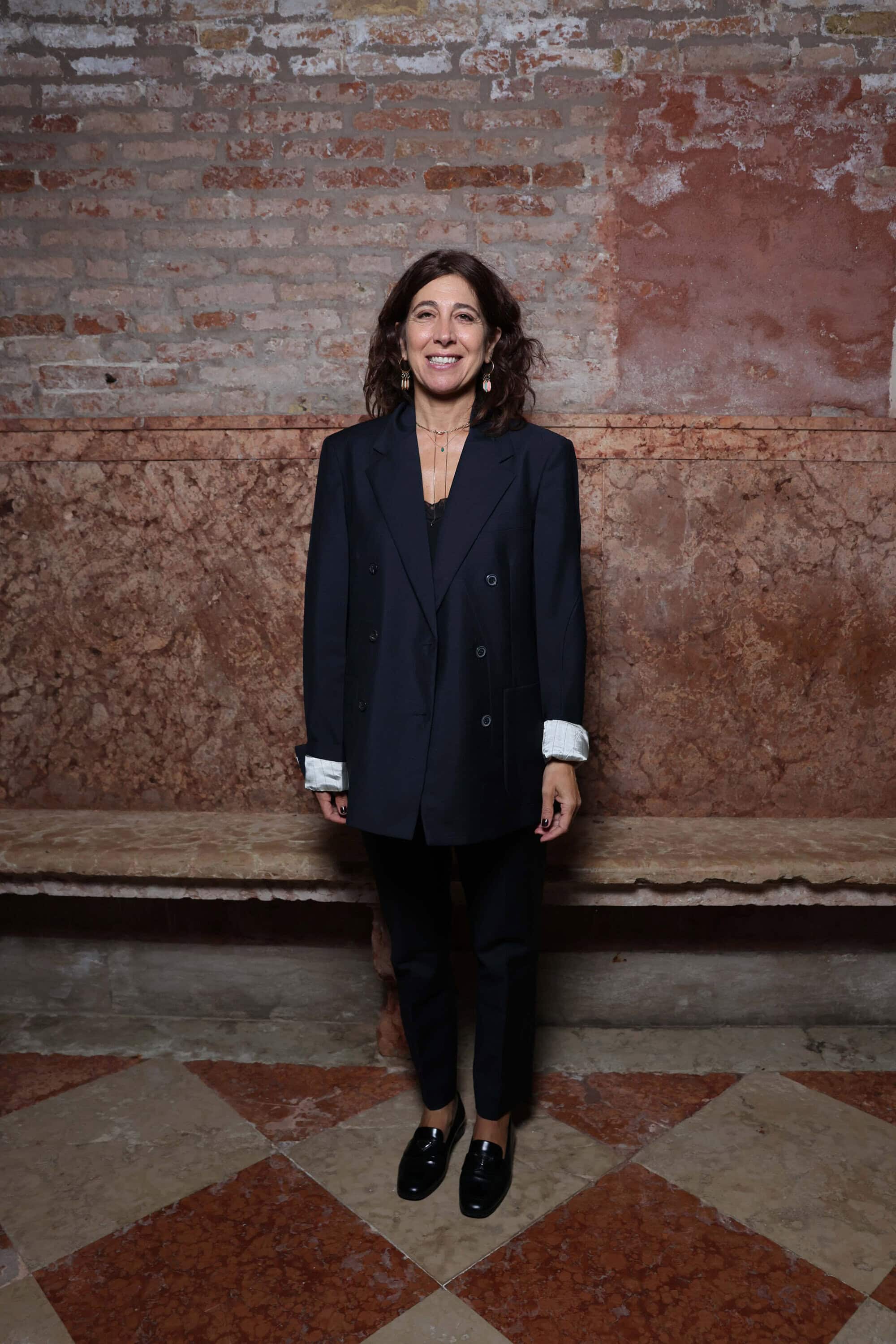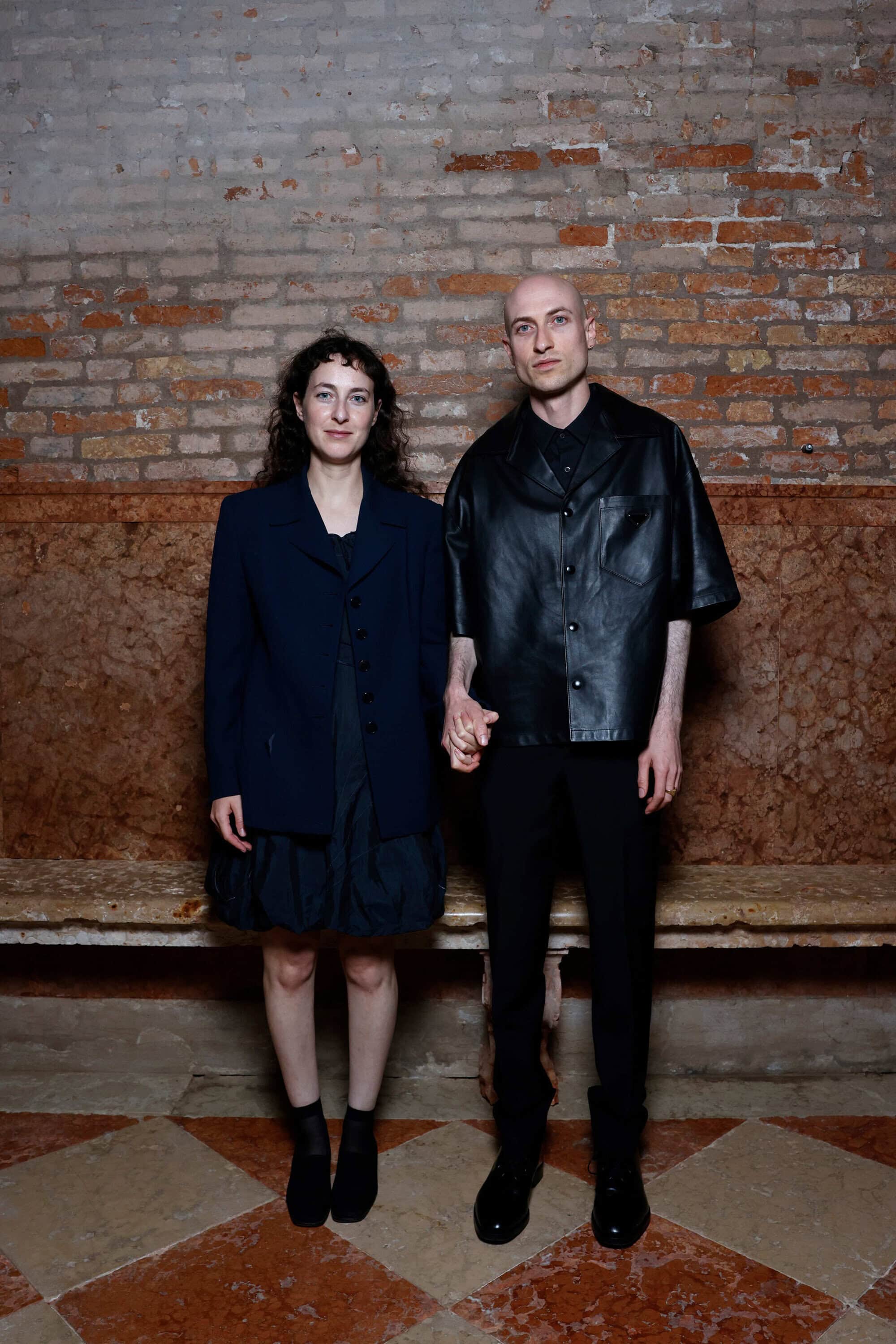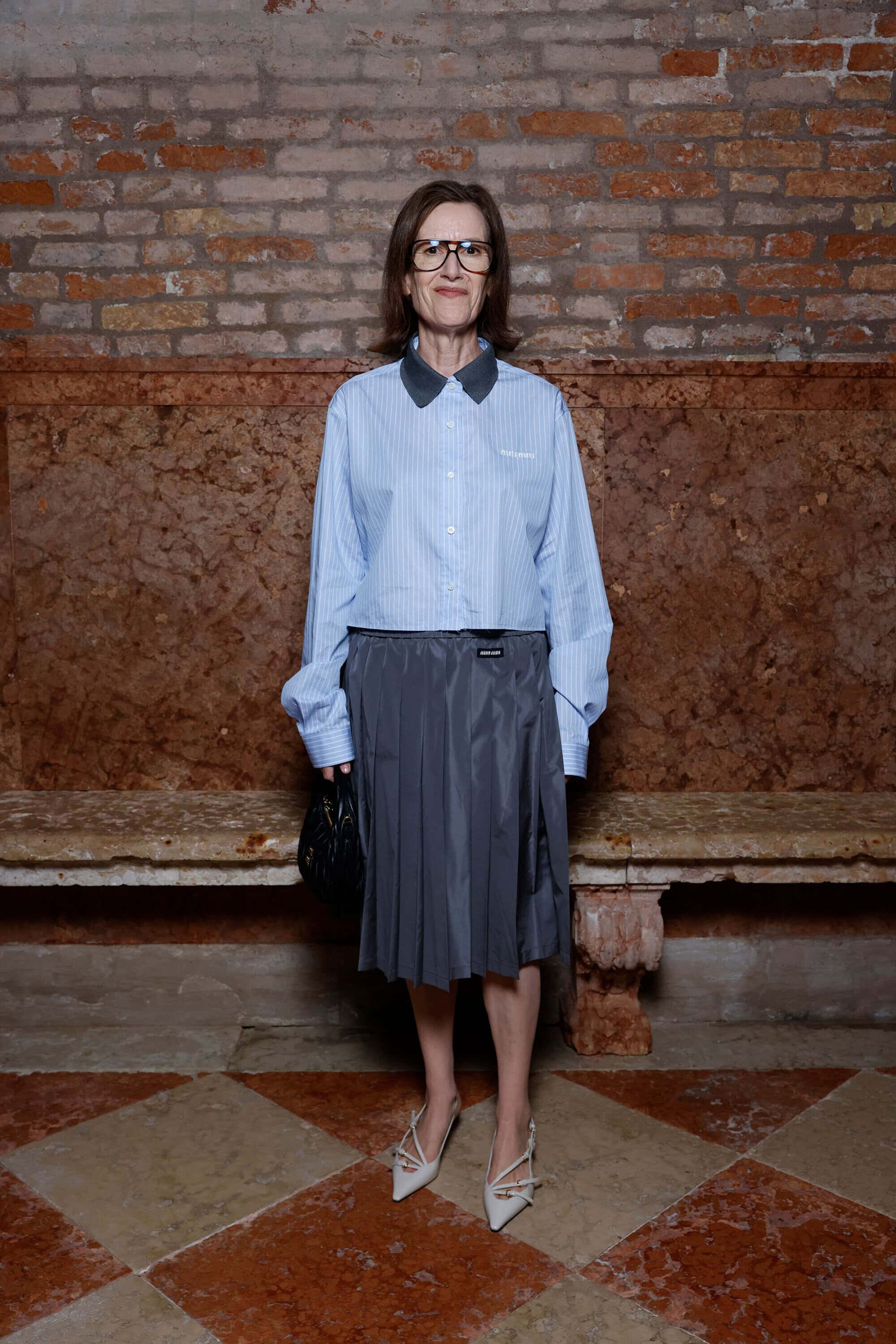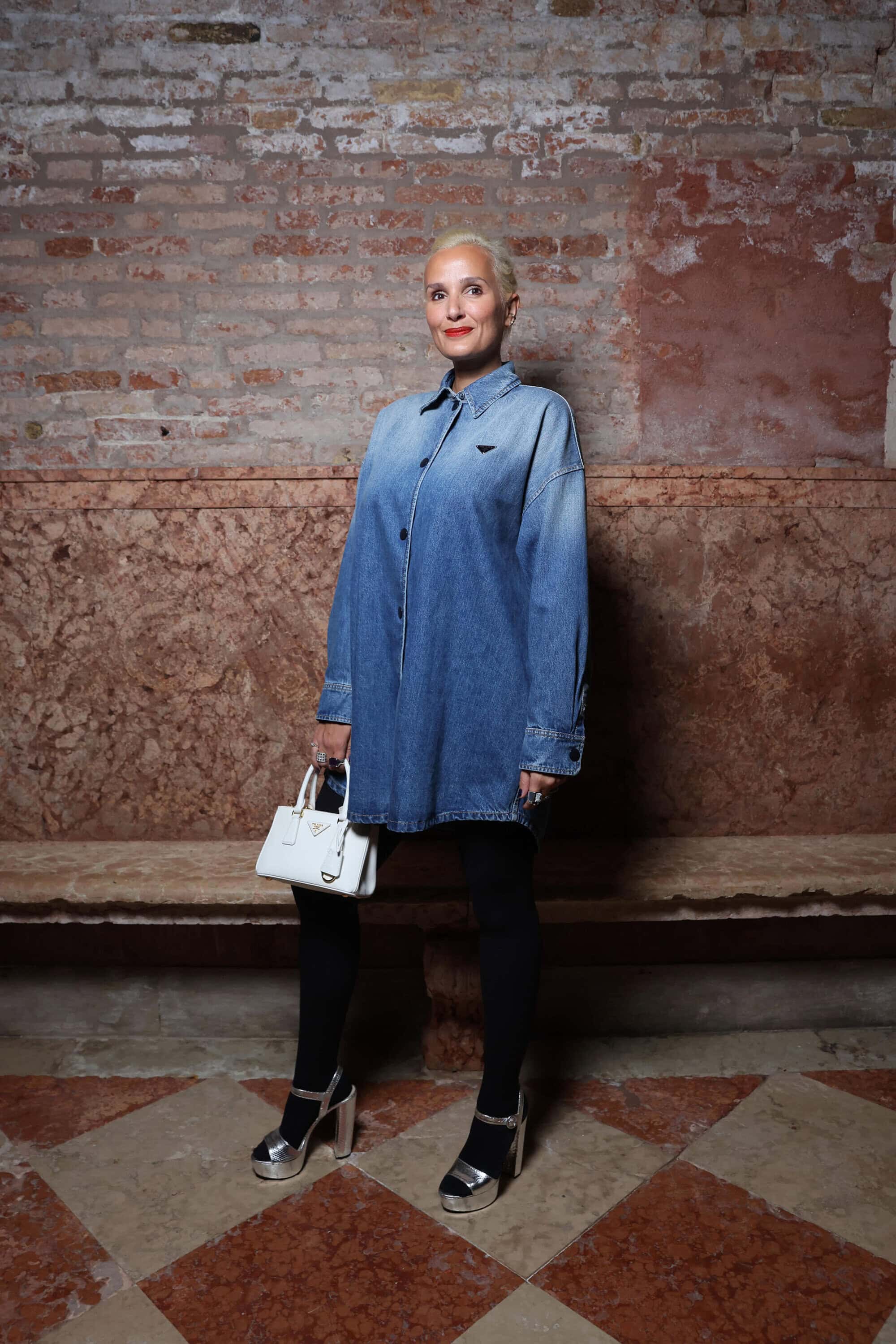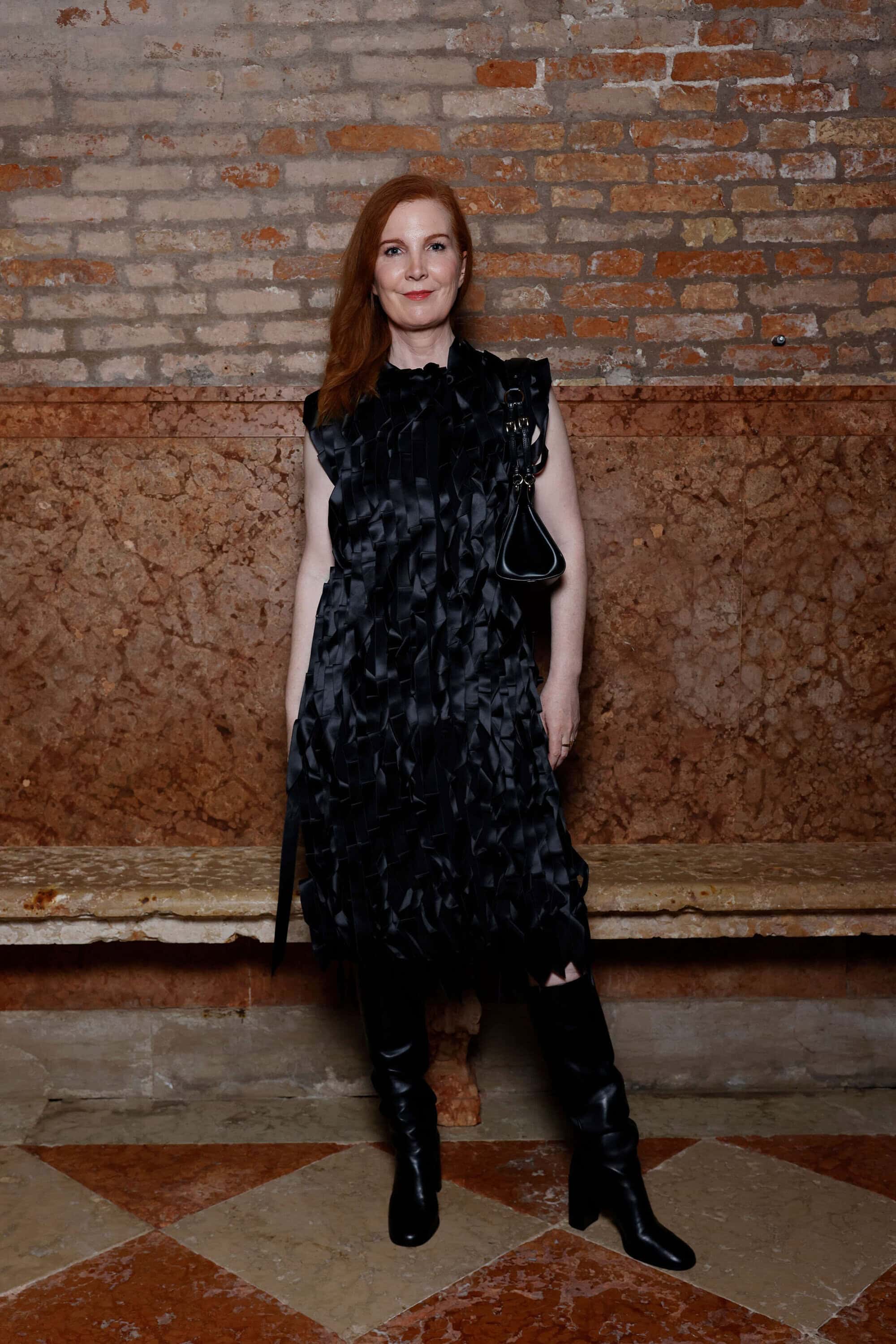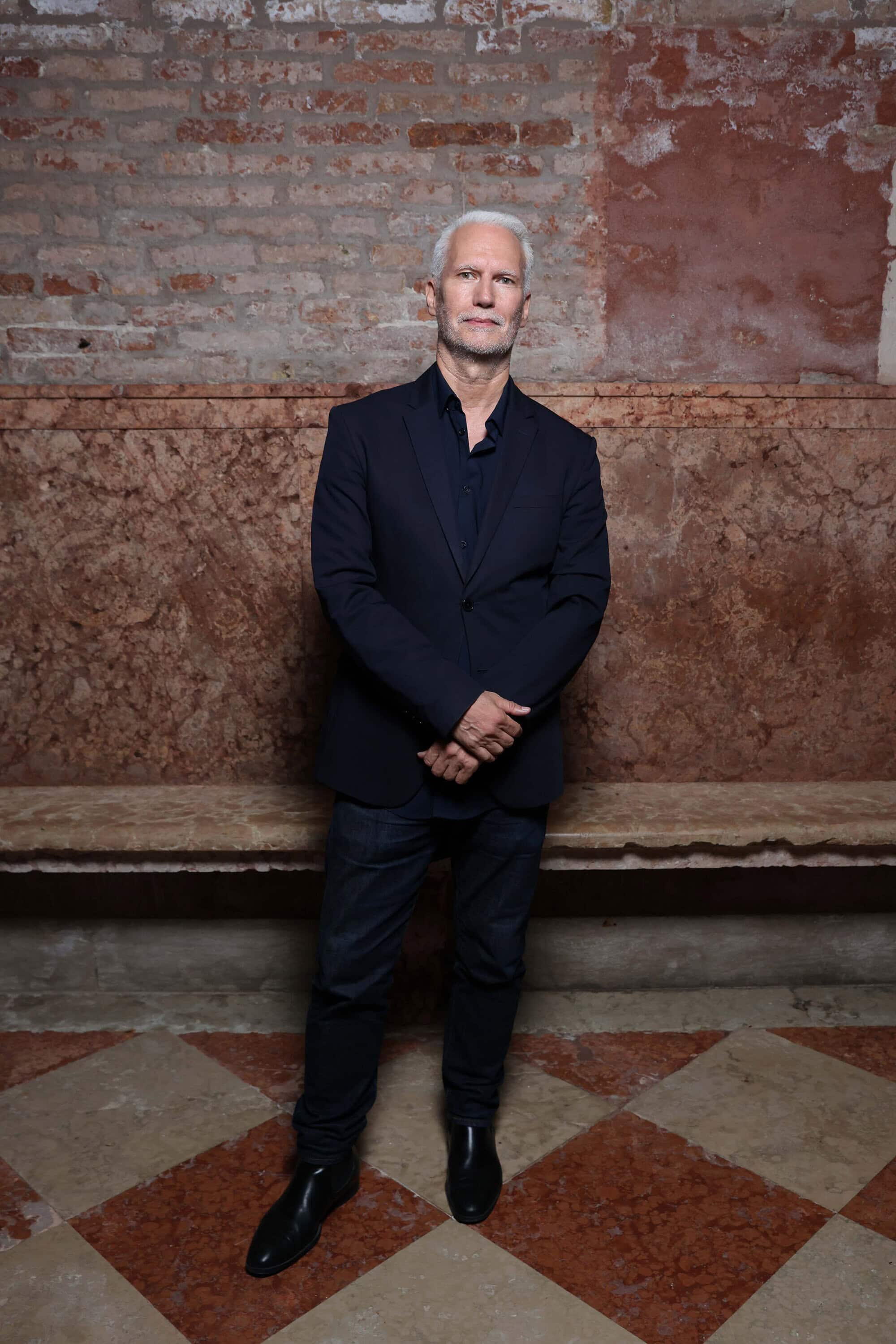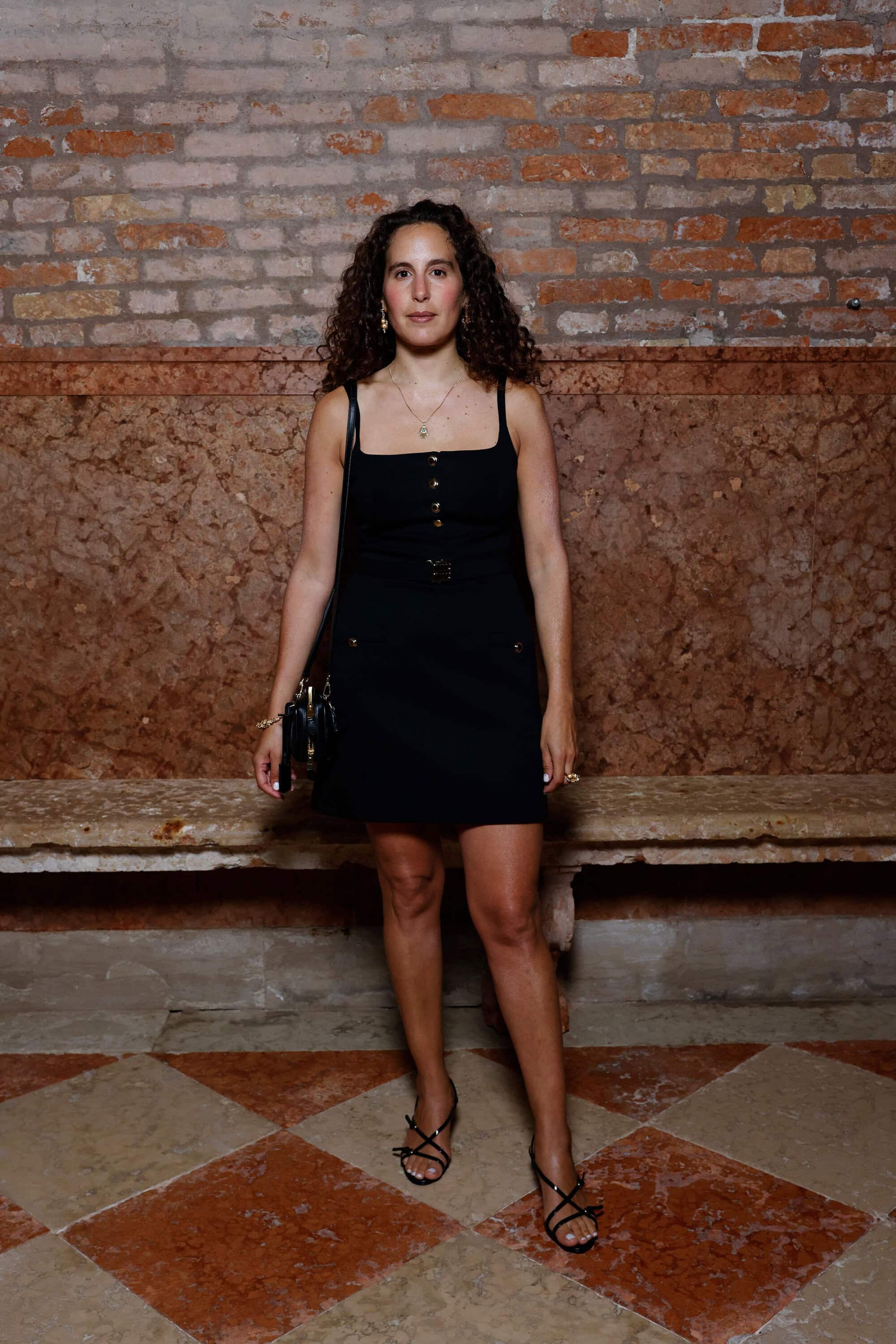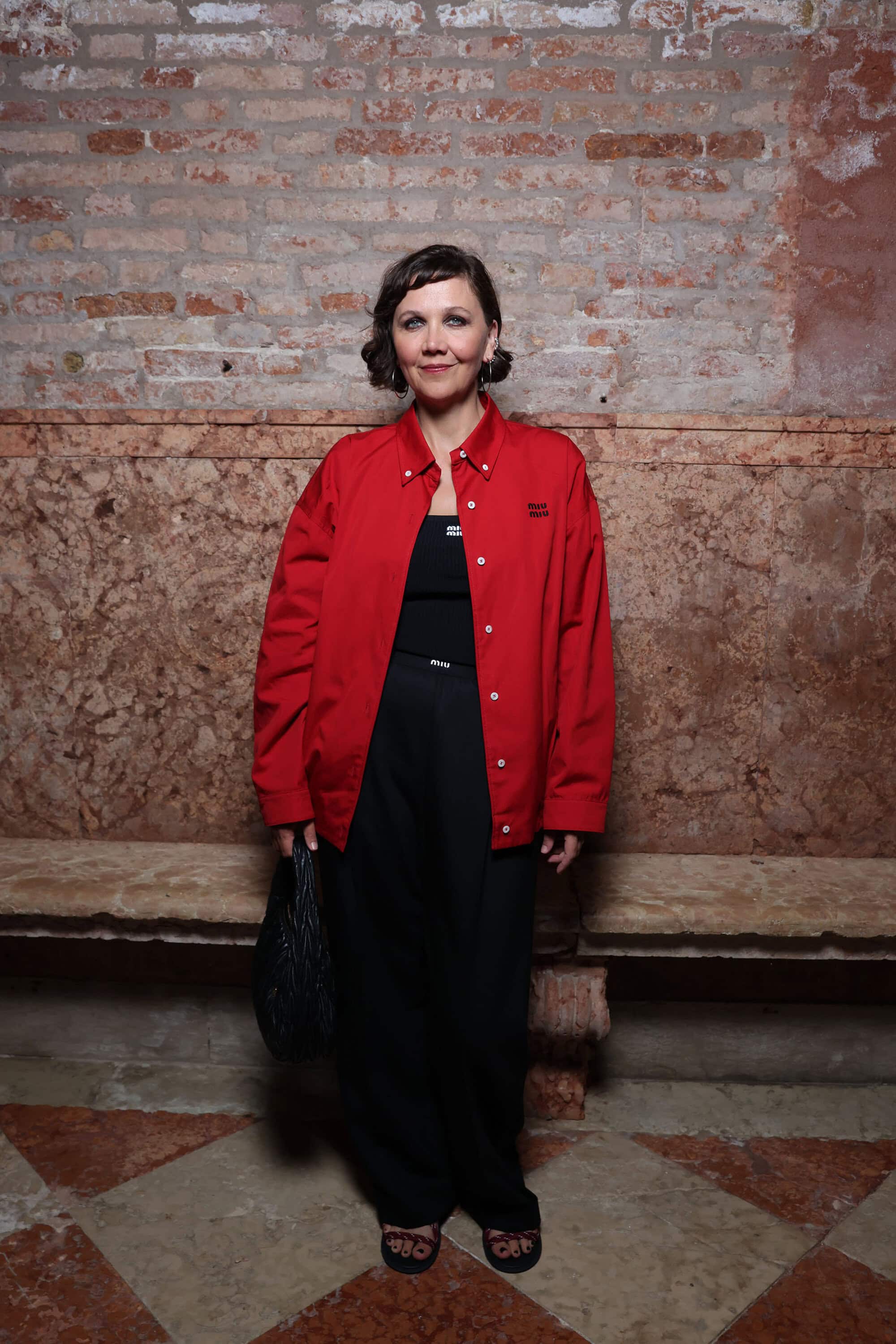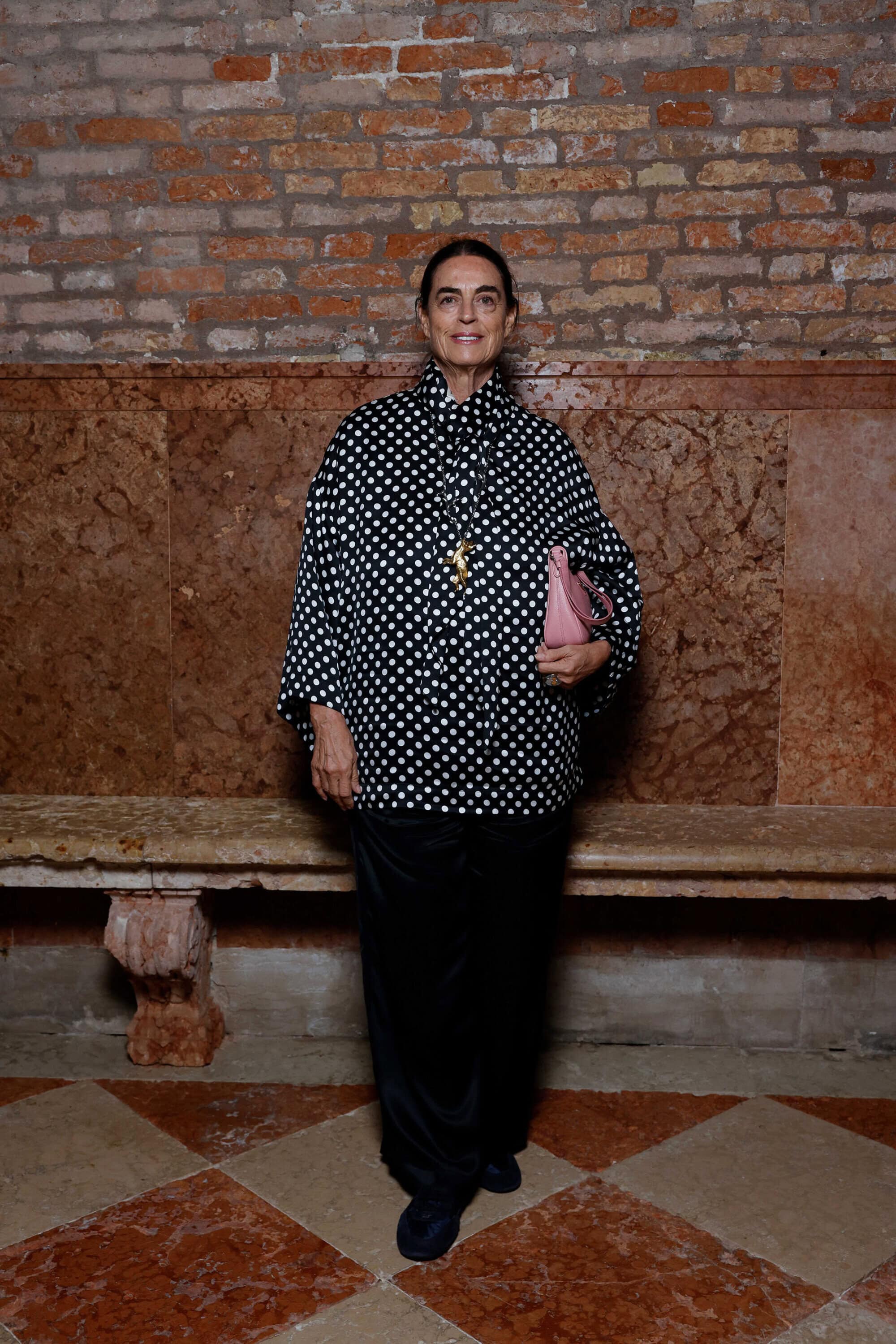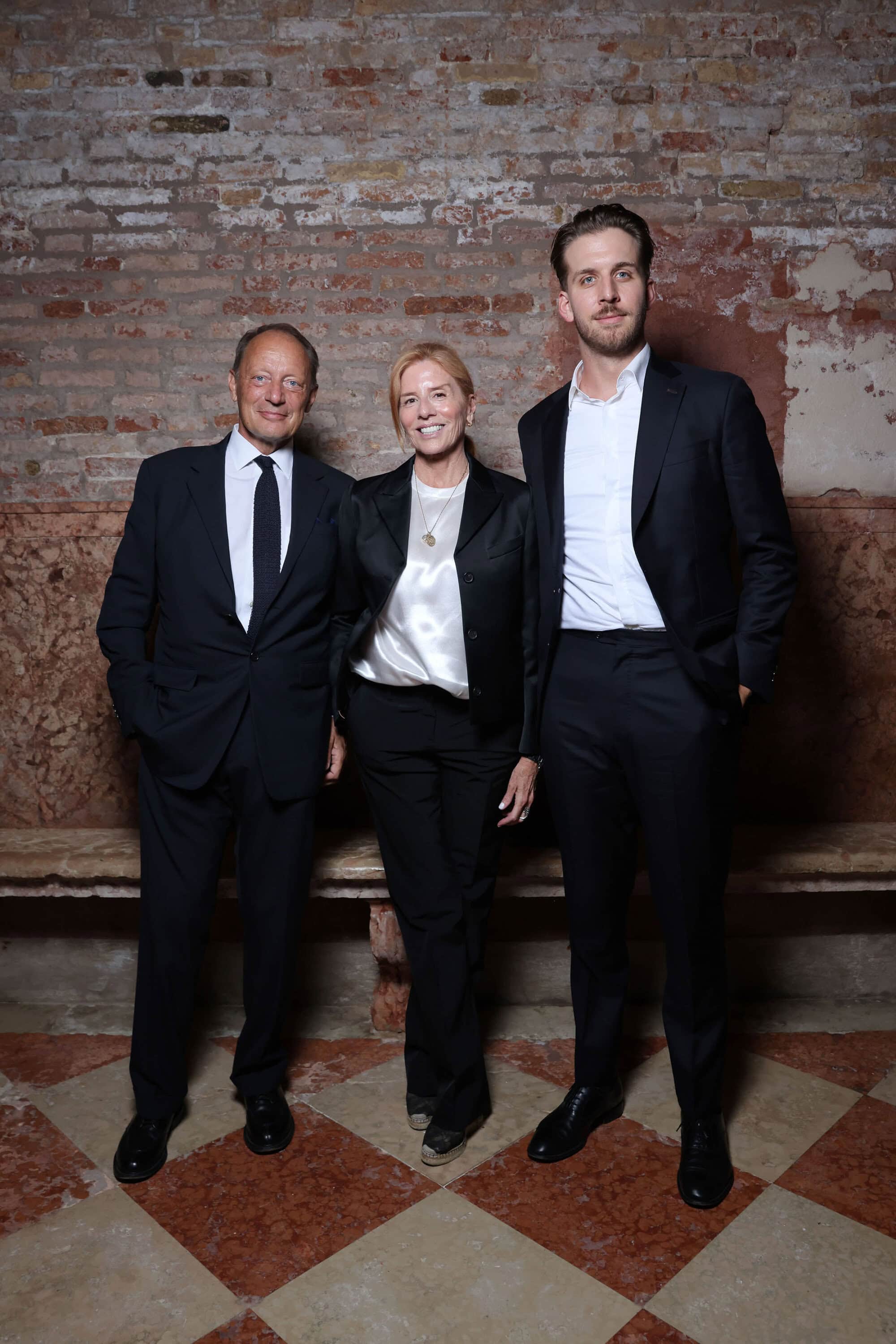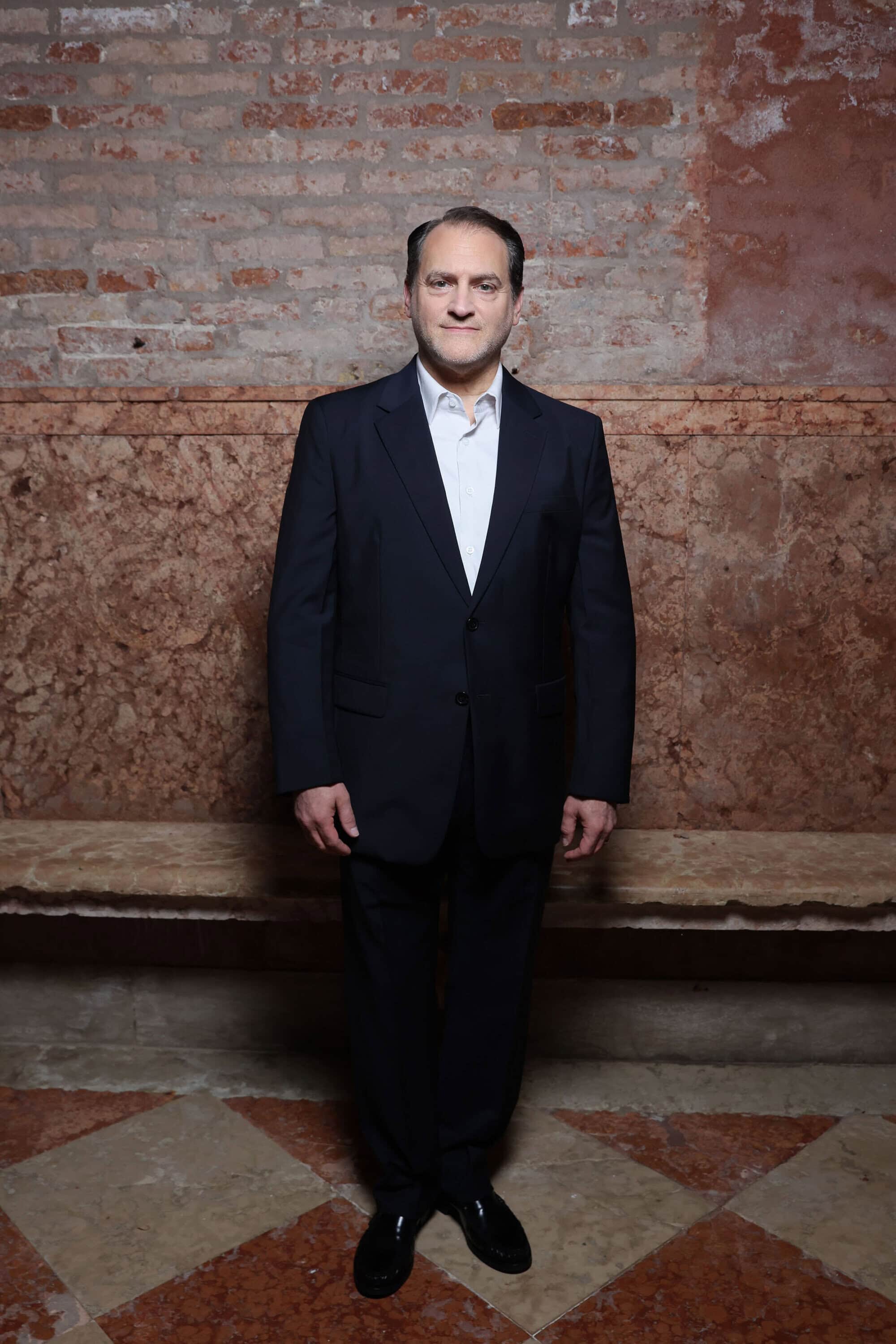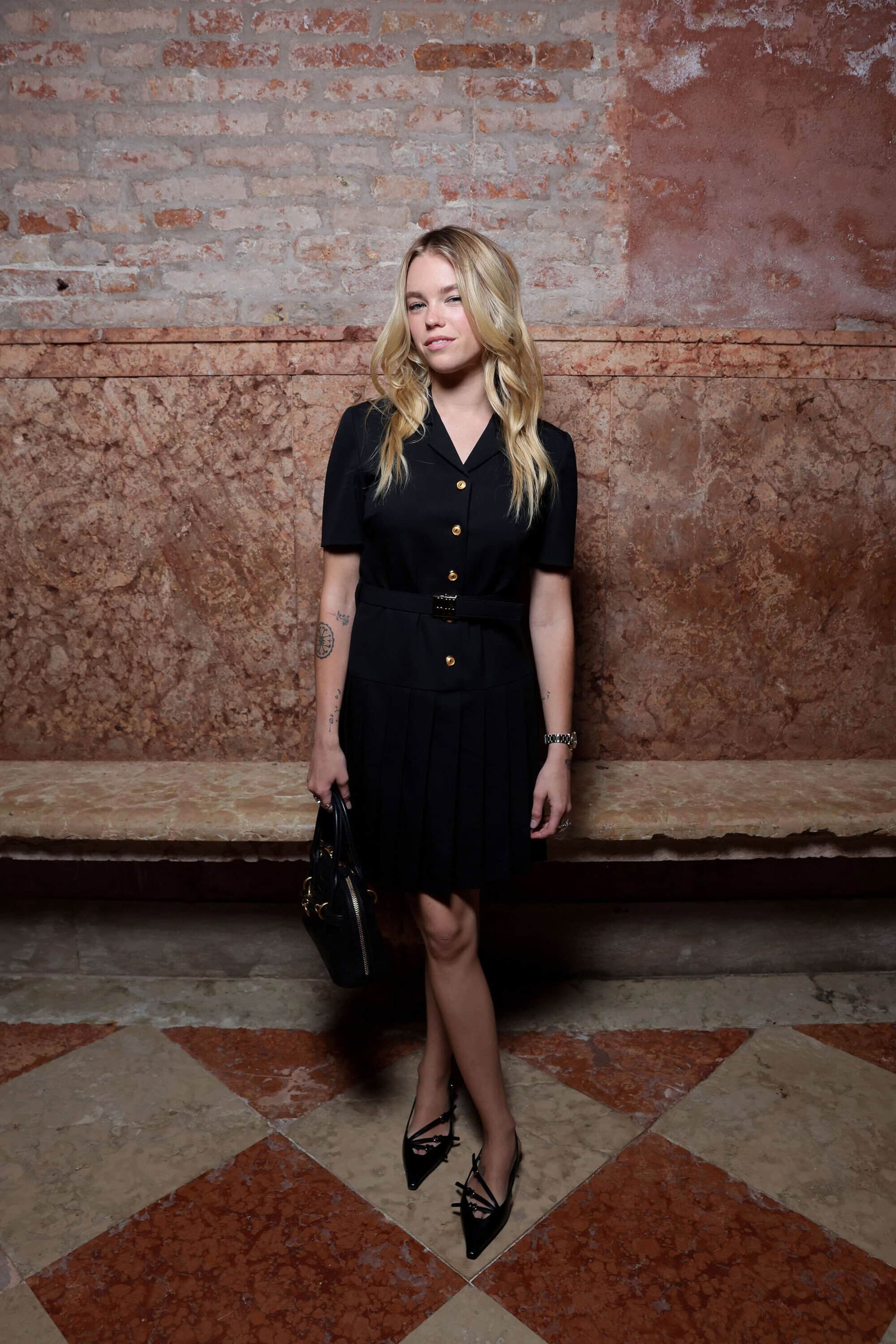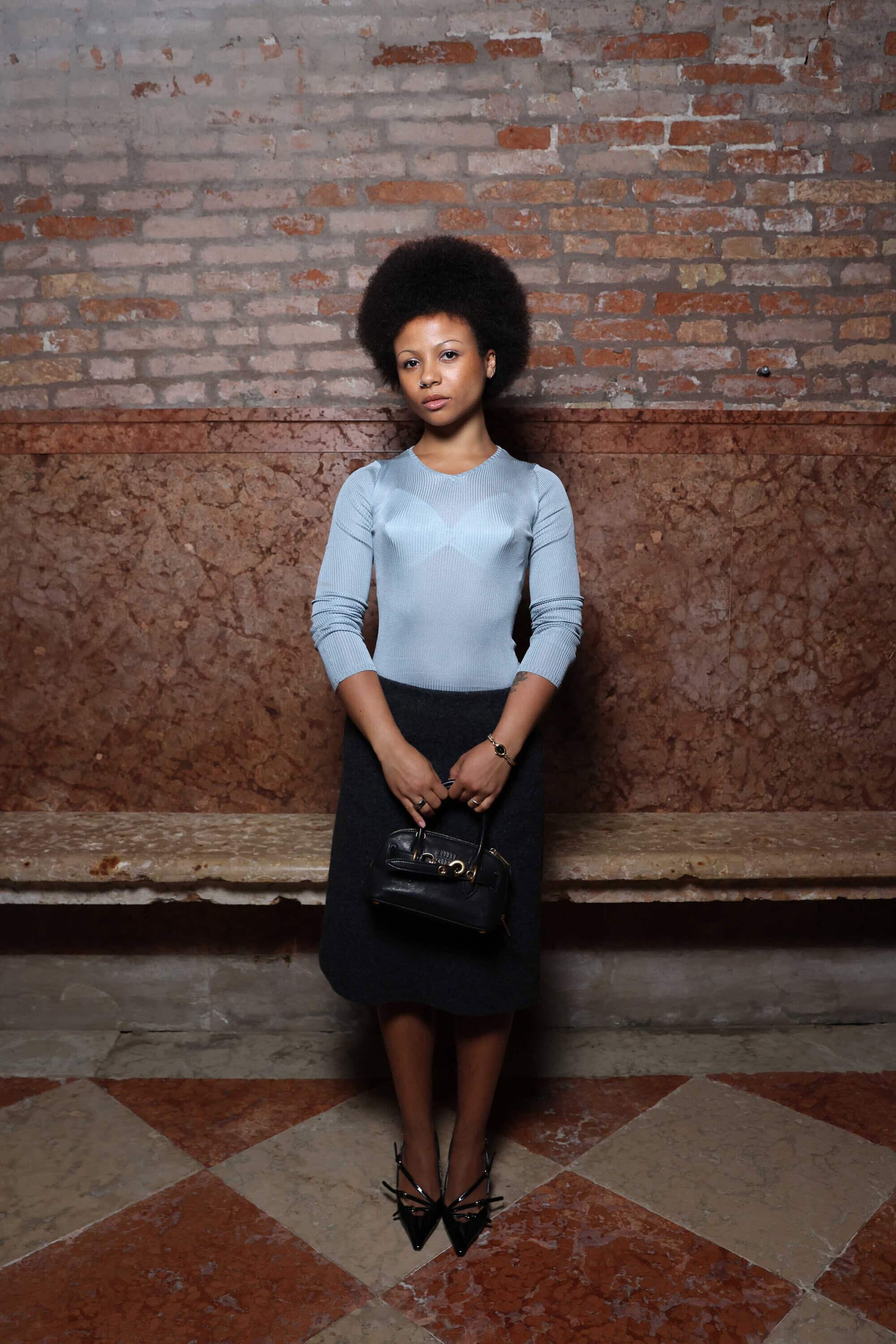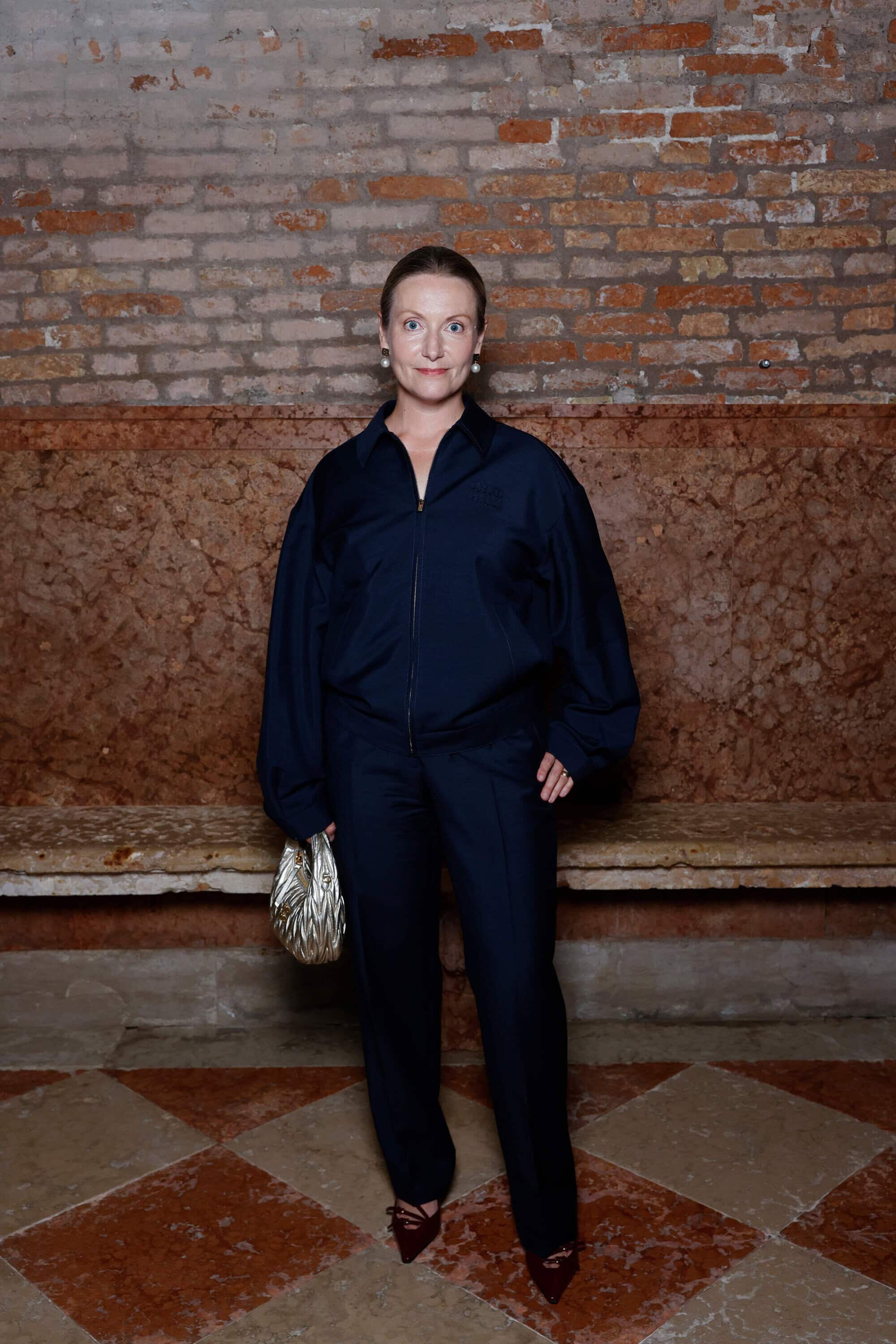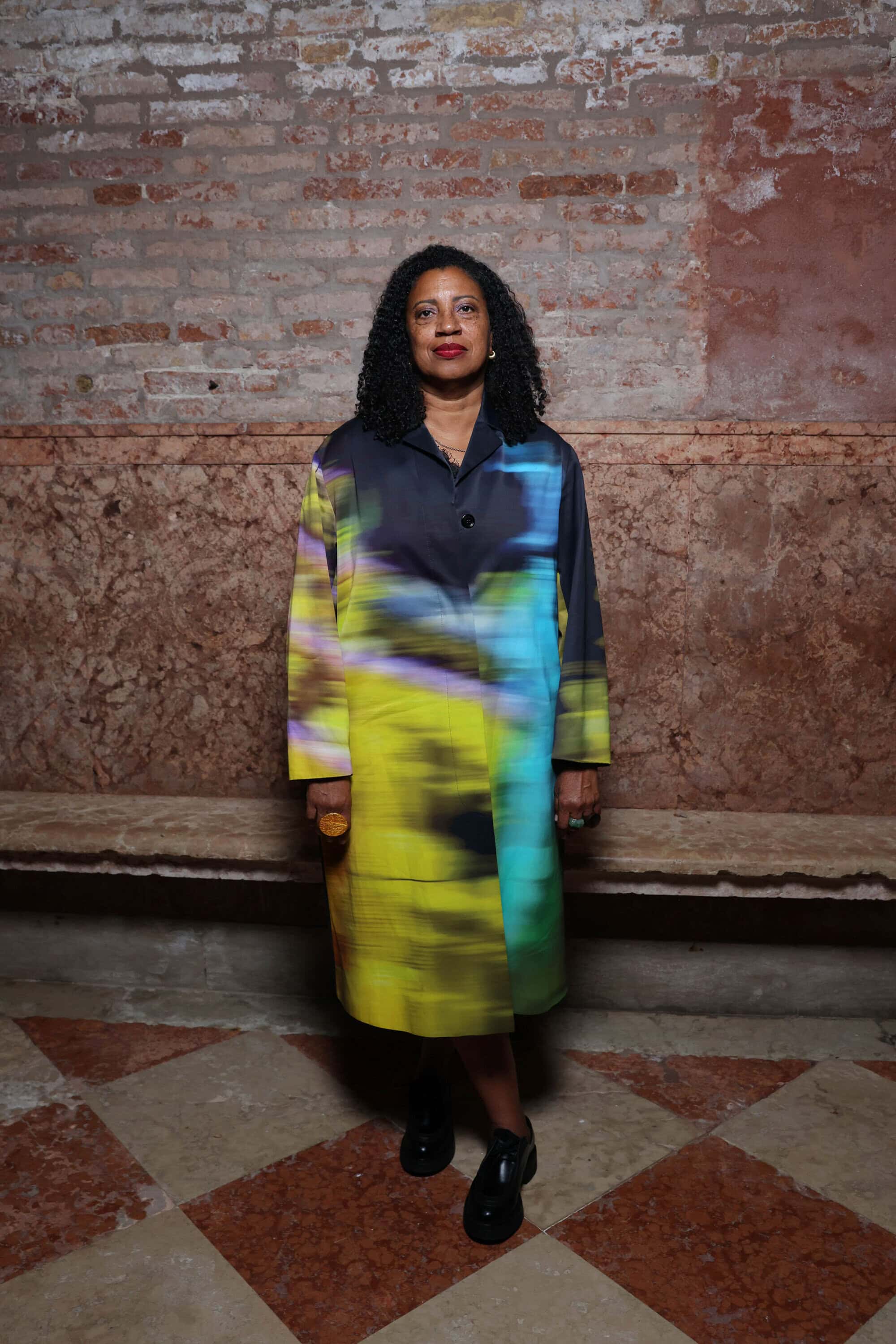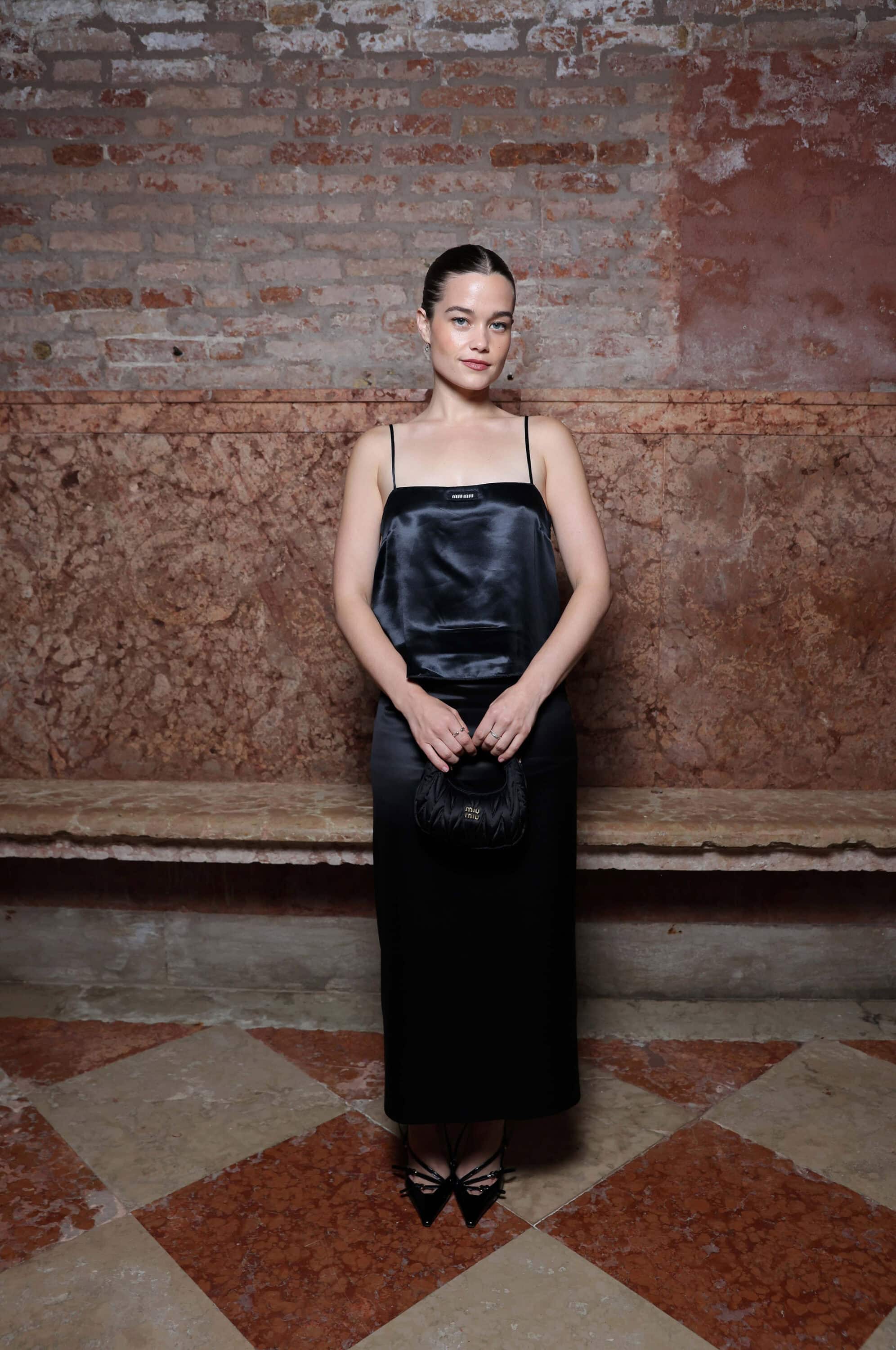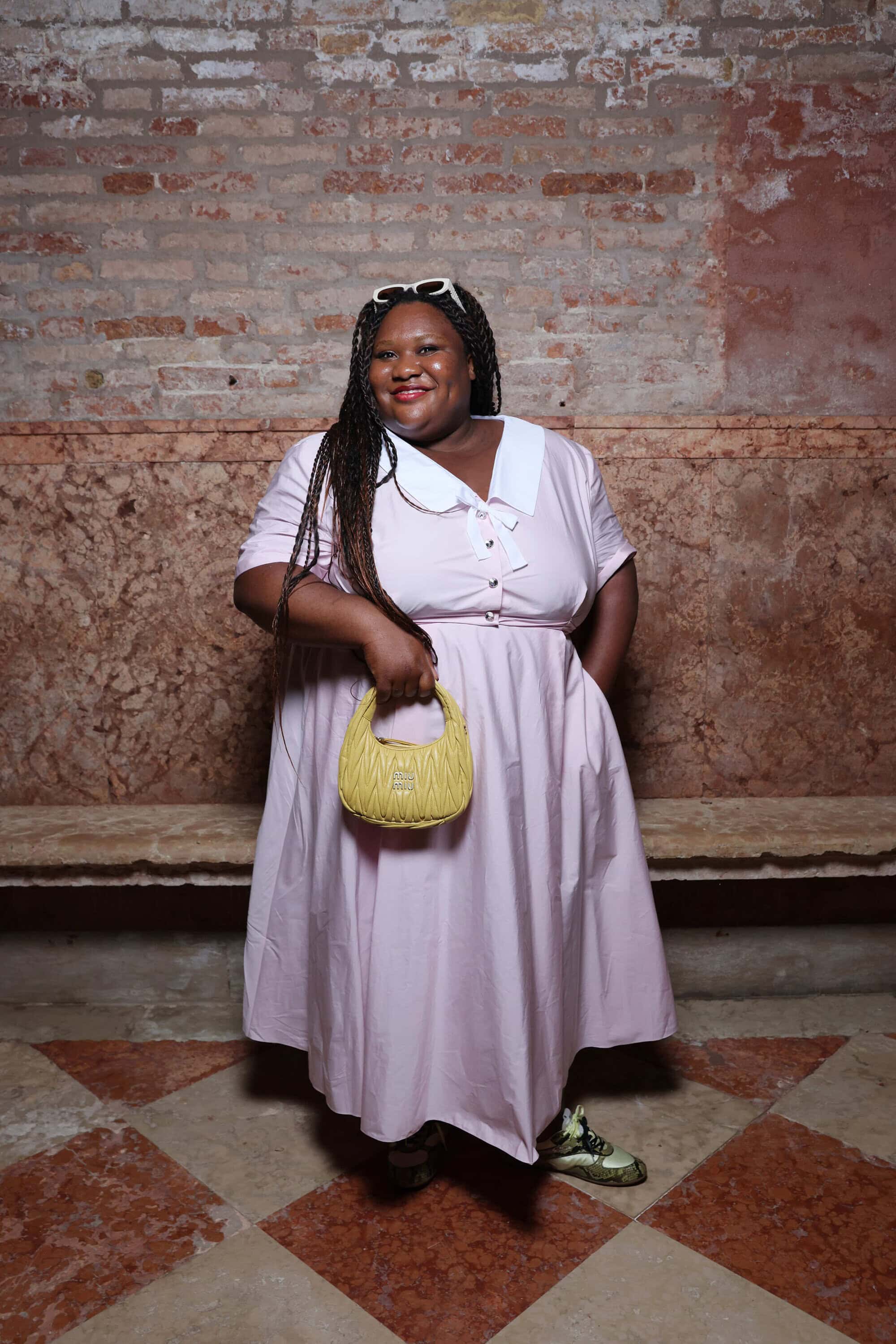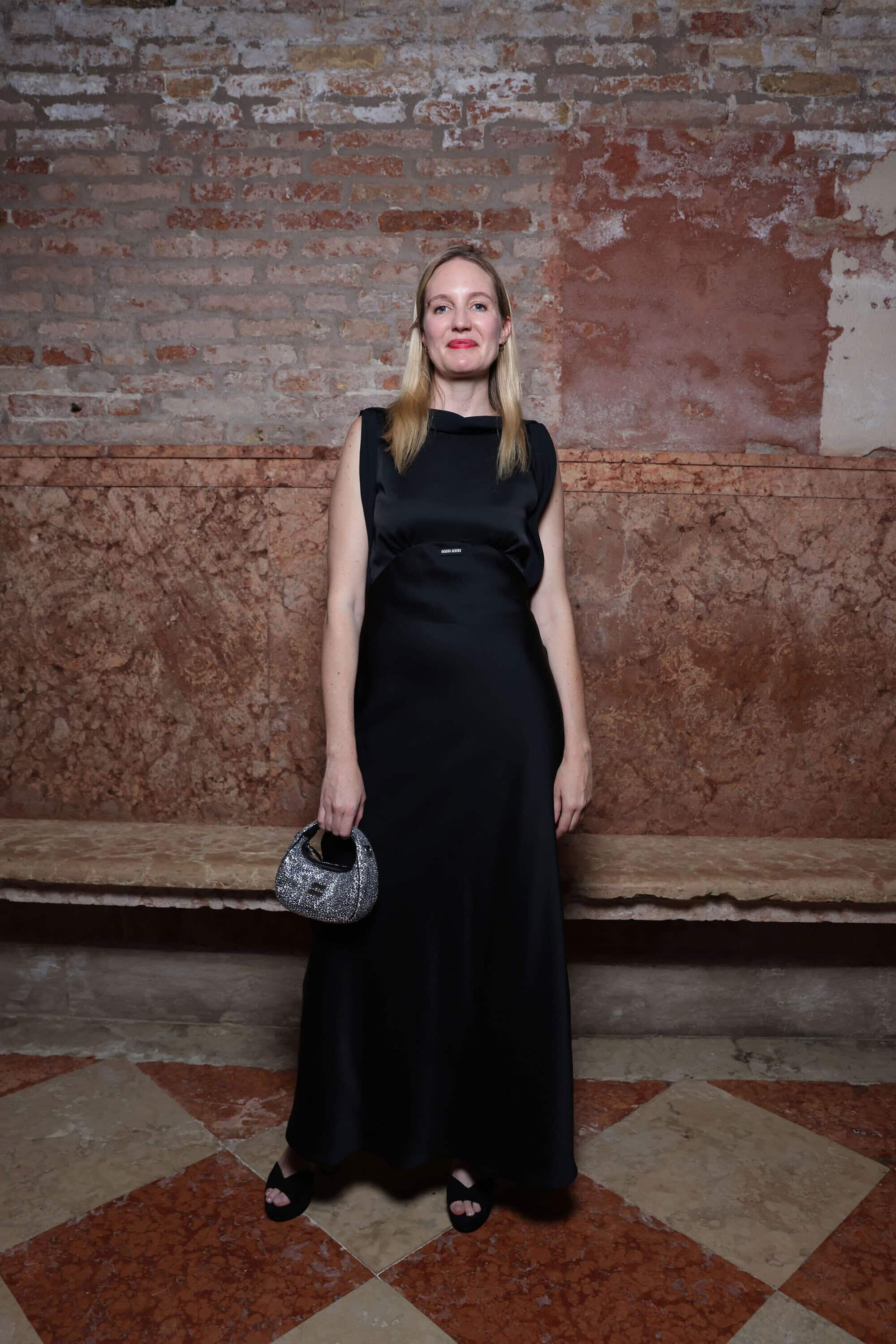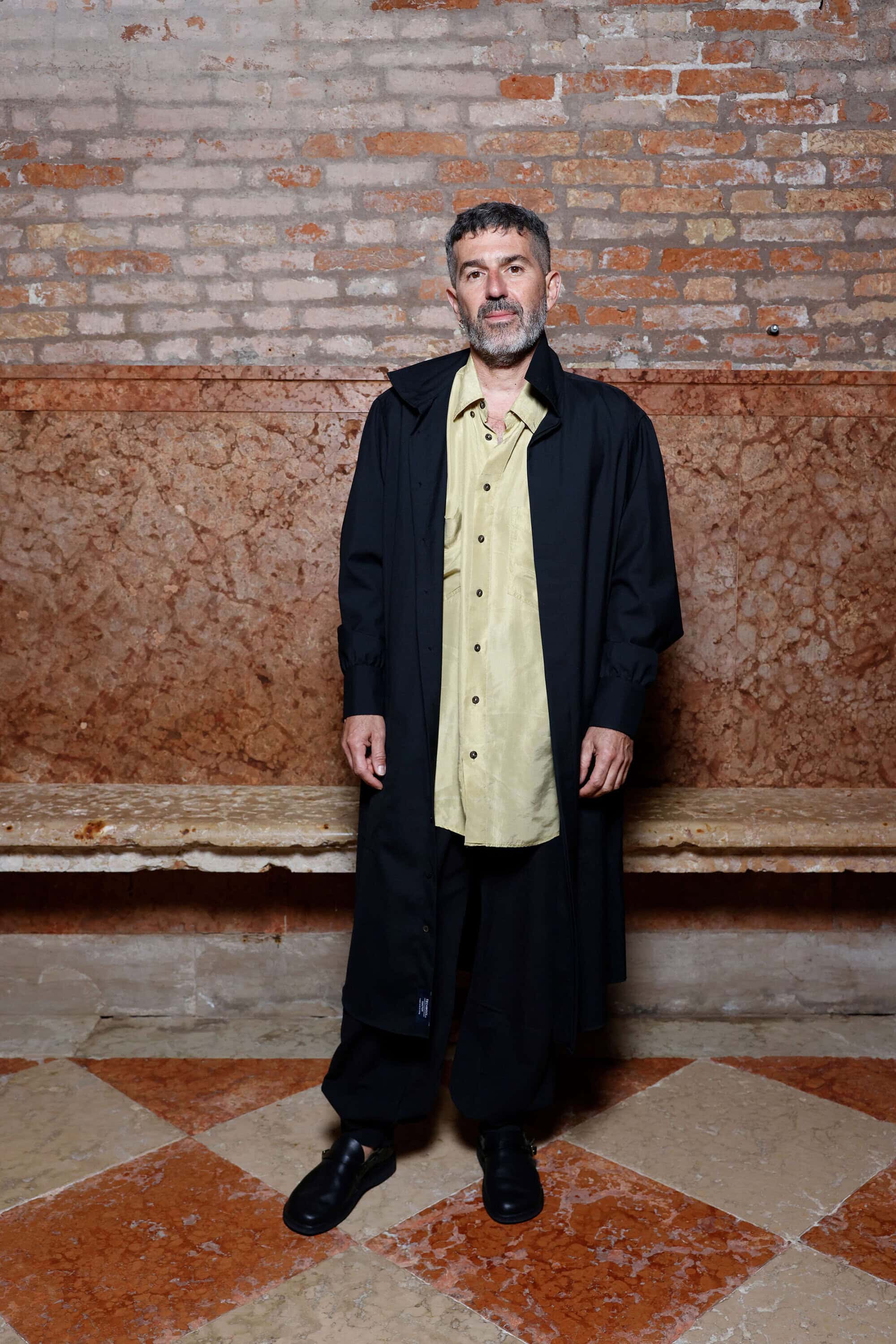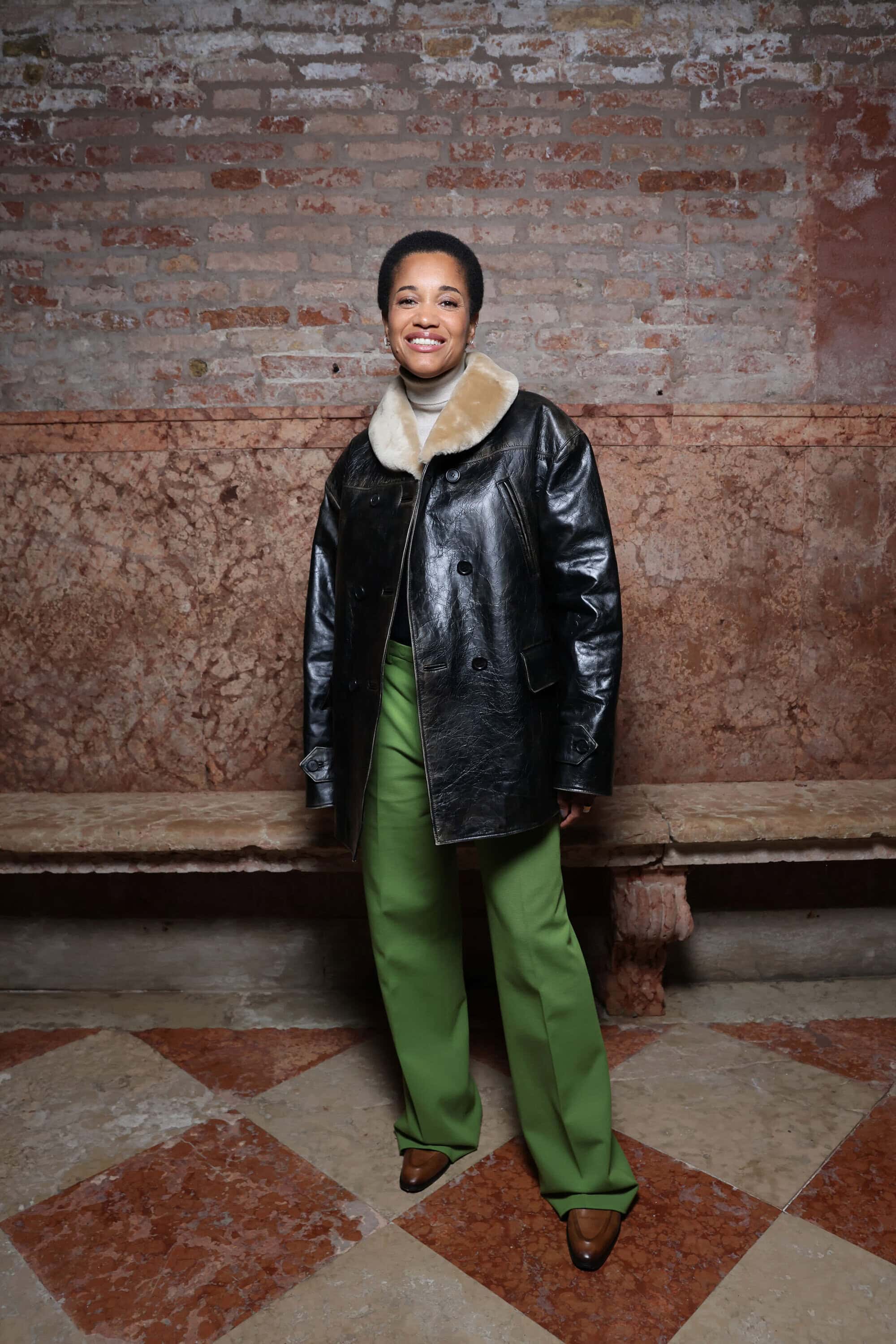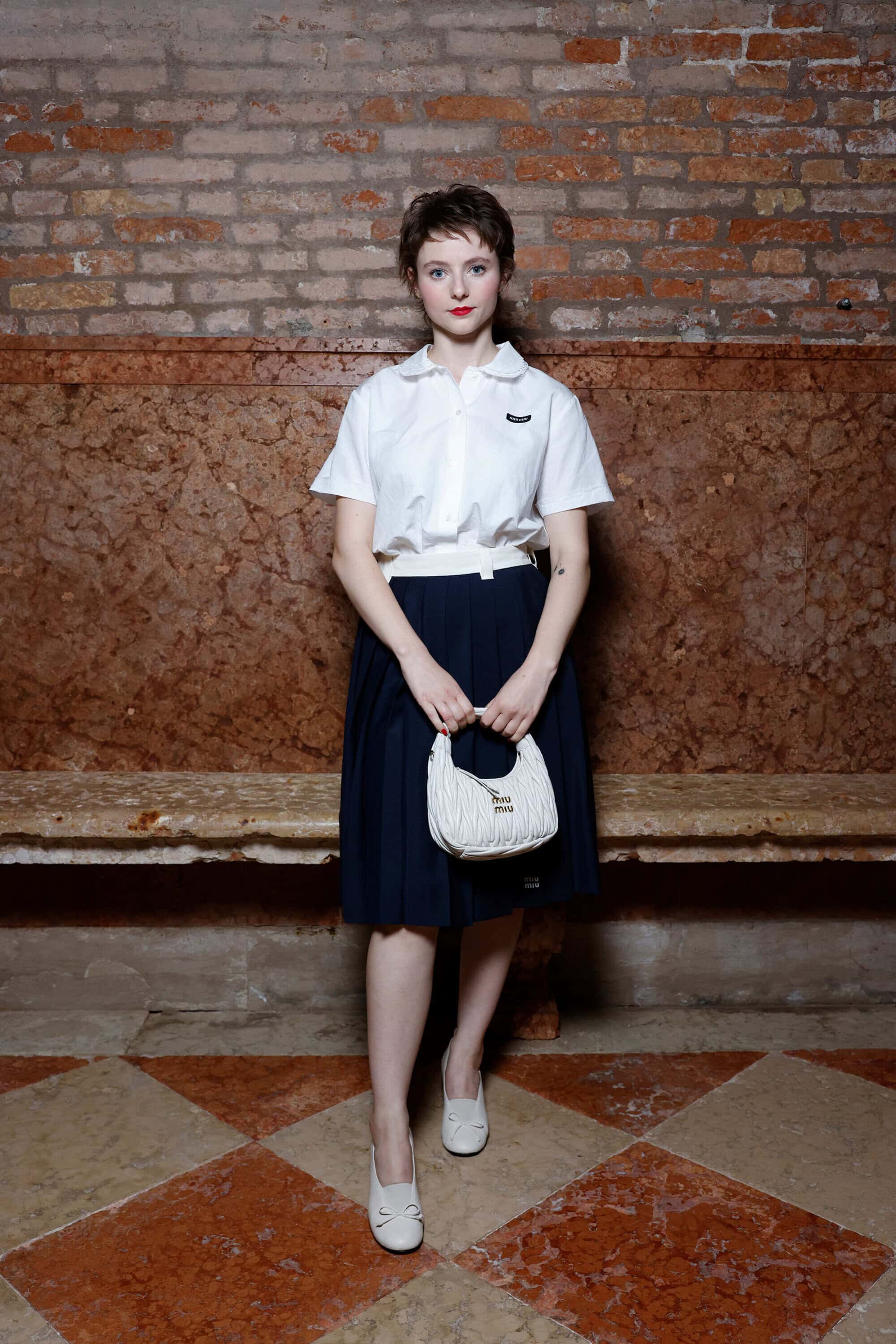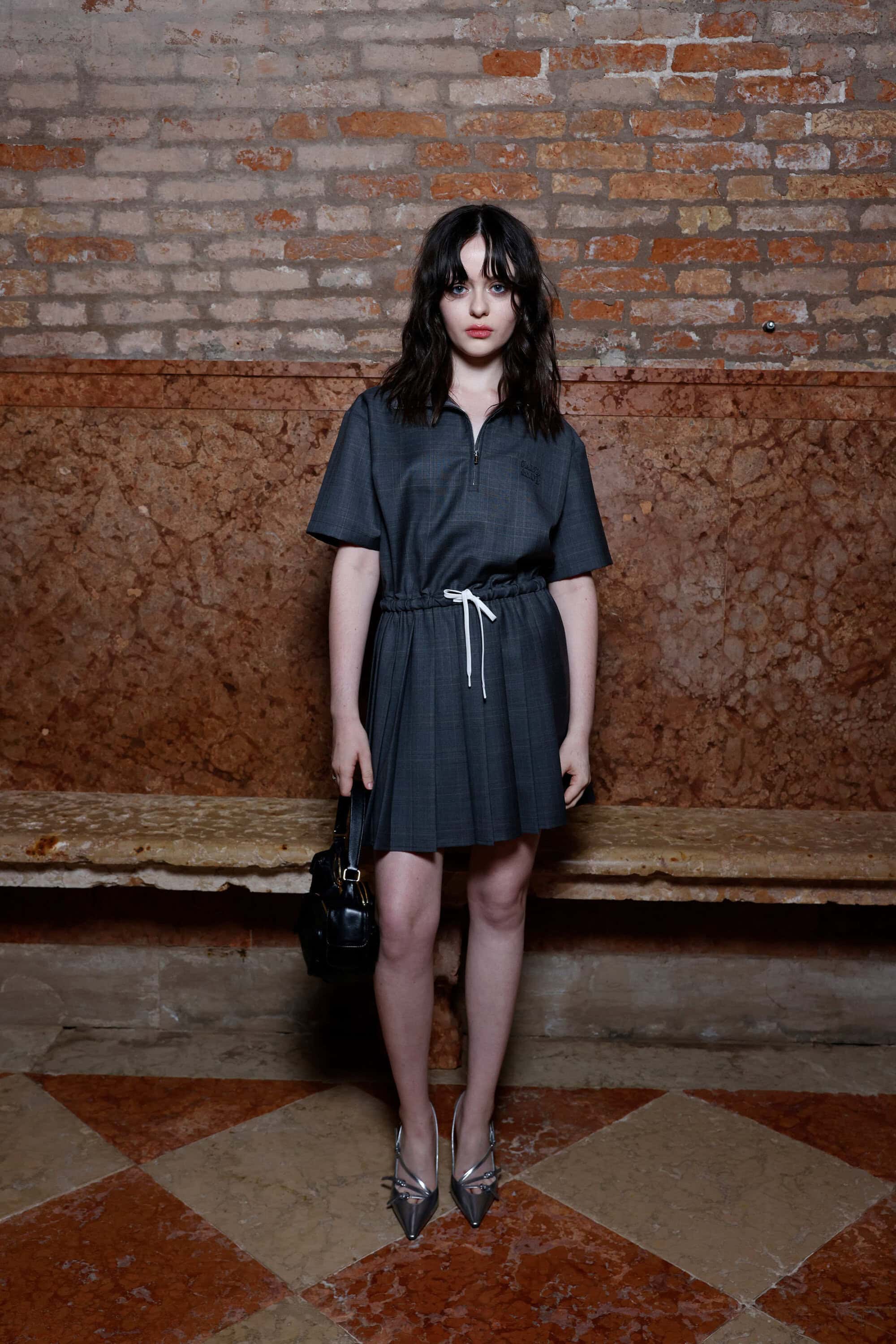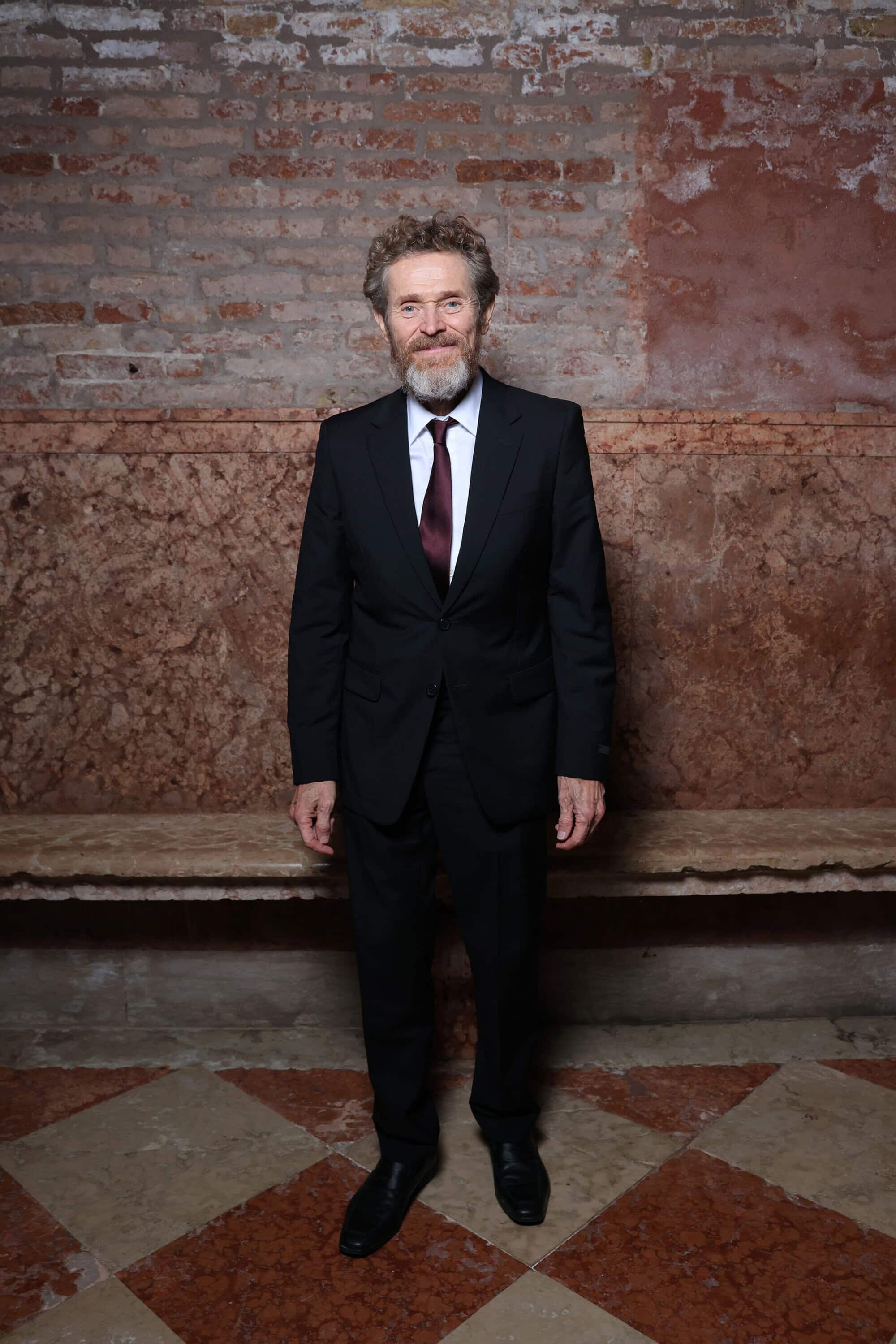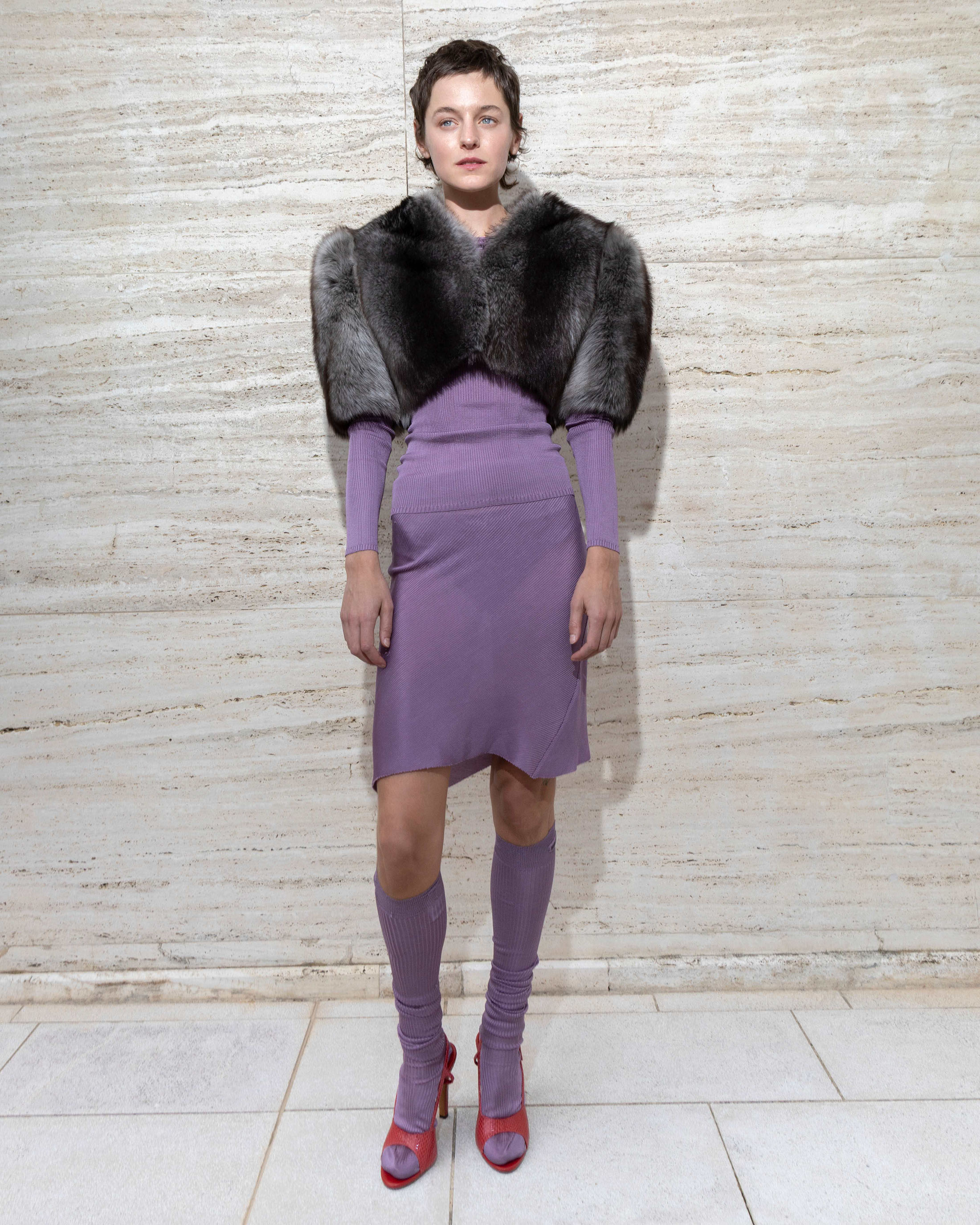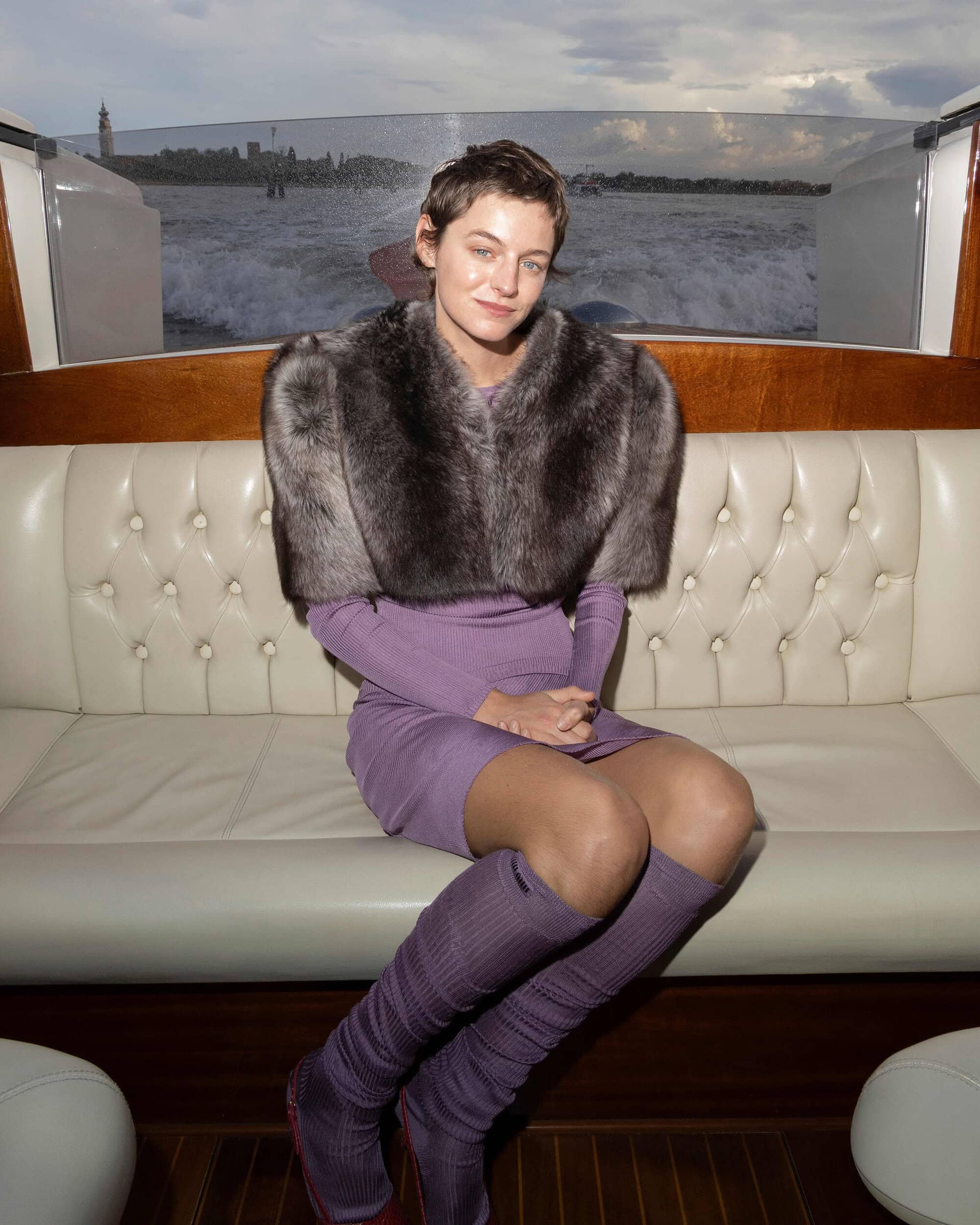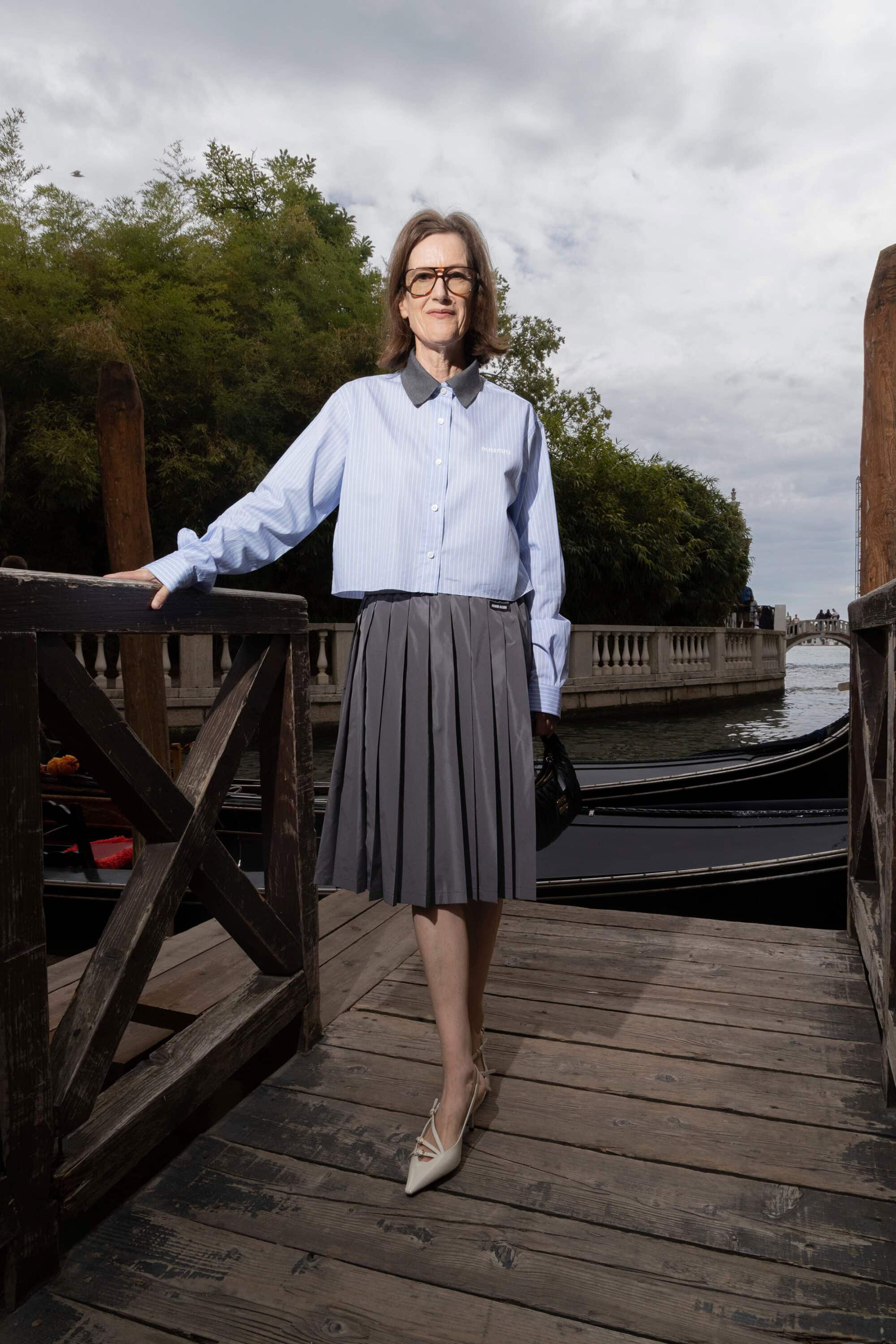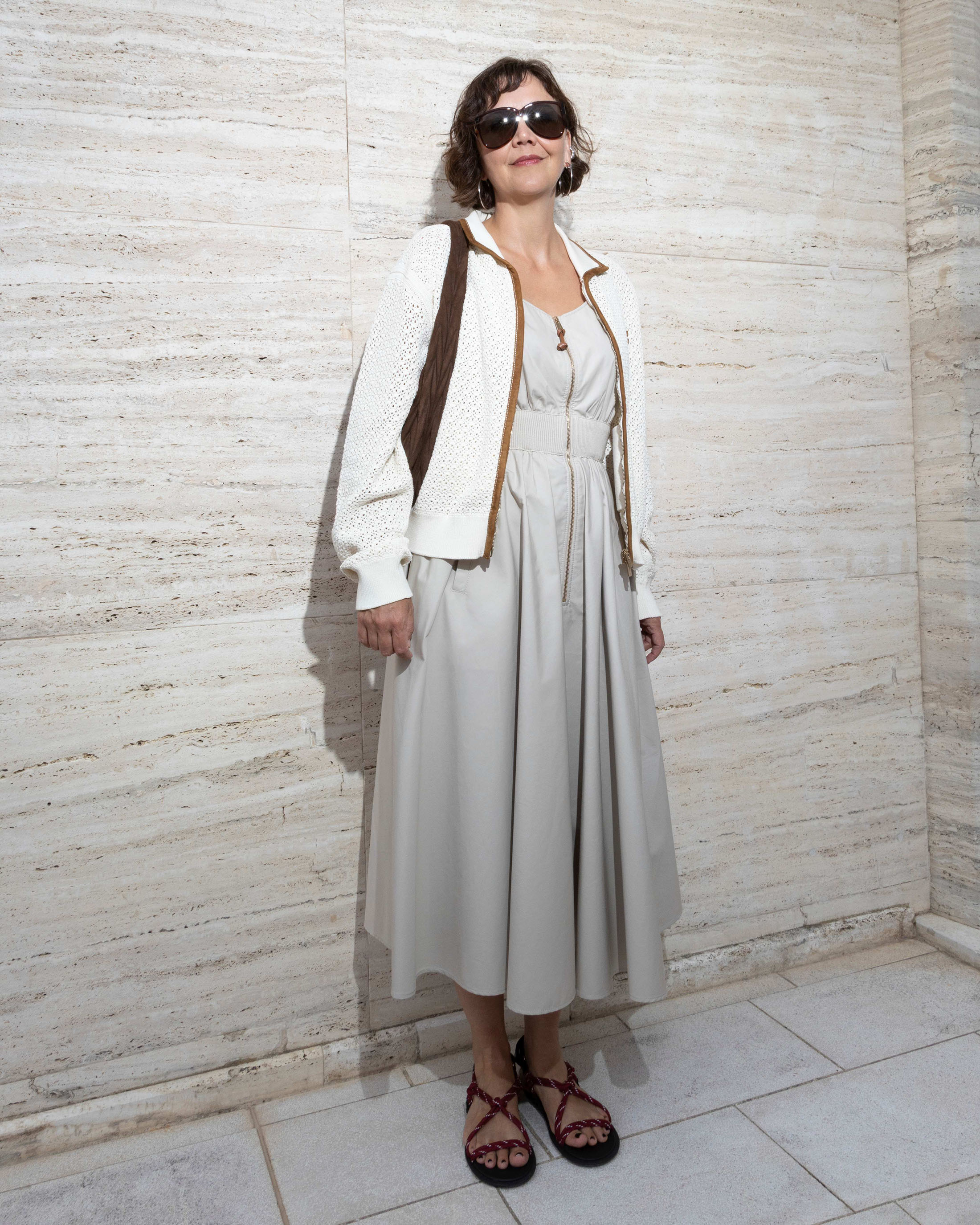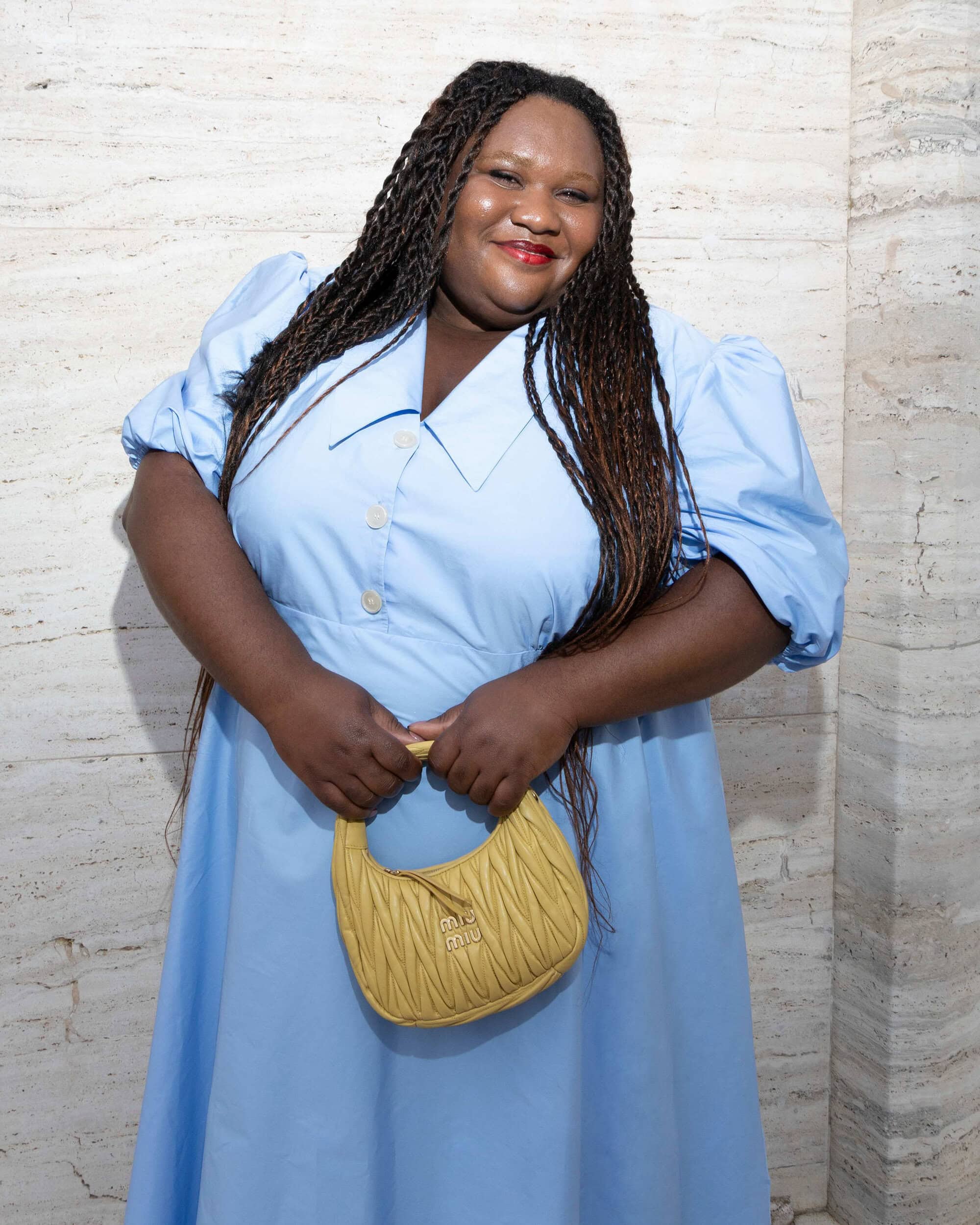The 30th Women’s Tales short film offers a poetic meditation on Black femininity and premiered alongside Joanna Hogg’s new entry during a star-studded evening in Venice
Miu Miu unveiled the latest additions to its celebrated Women’s Tales film series during the Venice Film Festival’s Giornate degli Autori program with a double premiere: Autobiografia di una Borsetta by Joanna Hogg and Fragments for Venus by Alice Diop. Held on Saturday, August 30, the screenings were followed by an intimate dinner at Ca’ Corner della Regina, drawing a dynamic guest list from across film, fashion, and art.
Among those in attendance were Alice Diop, Joanna Hogg, Willem Dafoe, Maggie Gyllenhaal, Amanda Seyfried, Emily Blunt, Dwayne Johnson, Jude Law, Céline Sciamma, Alexa Chung, Alicia Silverstone, Francesca Andreoli, Tamu McPherson, Robin Coste Lewis, and many more.
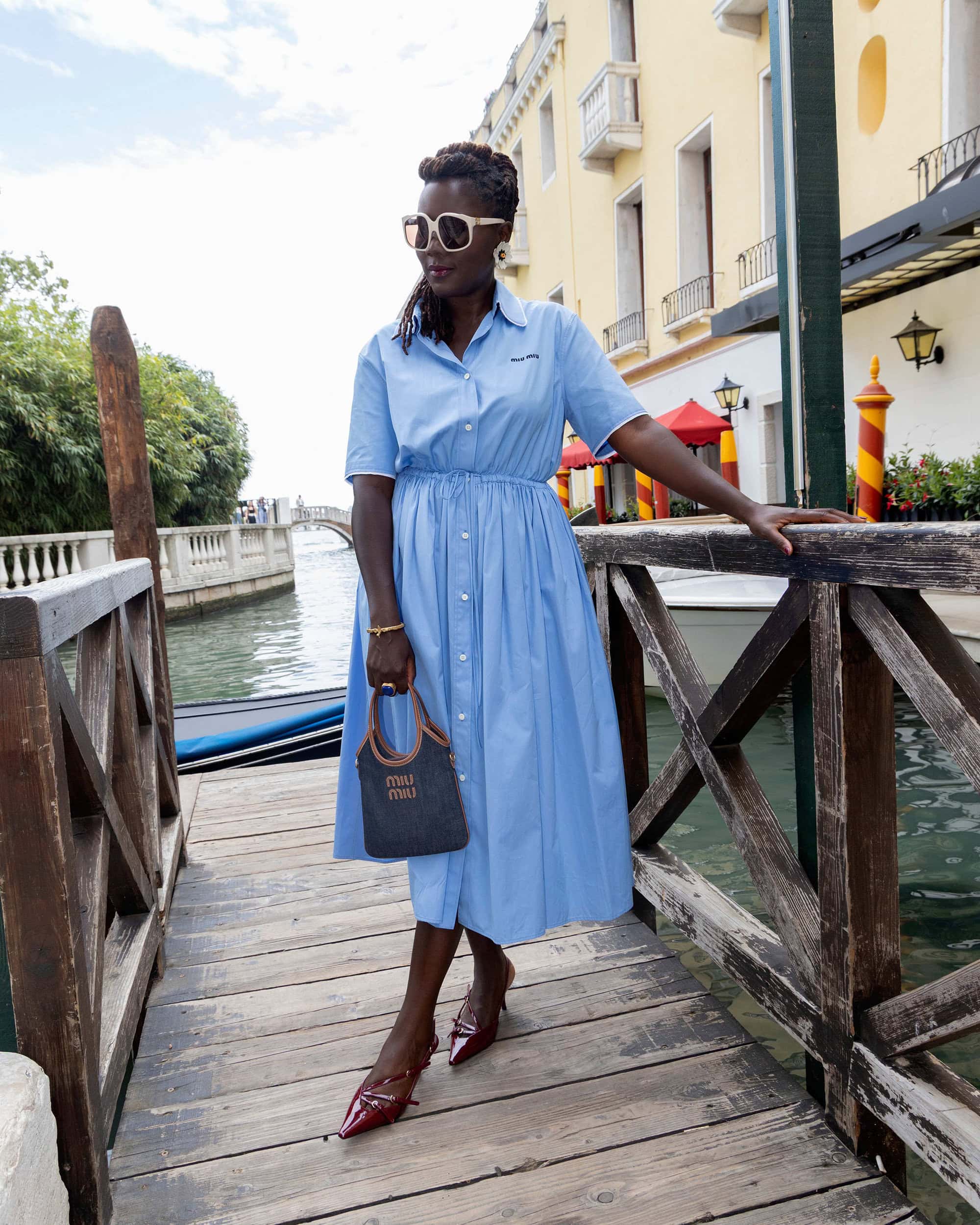
Fragments for Venus, the 30th installment in Miu Miu’s Women’s Tales, continues the house’s exploration of femininity through the lens of pioneering female filmmakers. Diop’s entry is a lyrical meditation on the Black female body—its historic marginalization and its reclamation—filtered through personal experience and poetic reference. The film’s visual framework is simple but powerful: one woman wanders through a museum, silently interrogating centuries of Western art; another moves through the streets of Brooklyn, witnessing Black women in all their joy and presence—living incarnations of a new Venus.
The project draws its conceptual core from Voyage of the Sable Venus by American poet laureate Robin Coste Lewis, a sweeping work constructed entirely of art historical catalog entries that reference the Black female form across millennia. Diop was introduced to the poem during a stay at Harvard University and cites it as the foundation of her “filmic gesture.” “My time in America nourished me,” she reflects, “and allowed me to question what it means to be a French, Black woman in French society.”
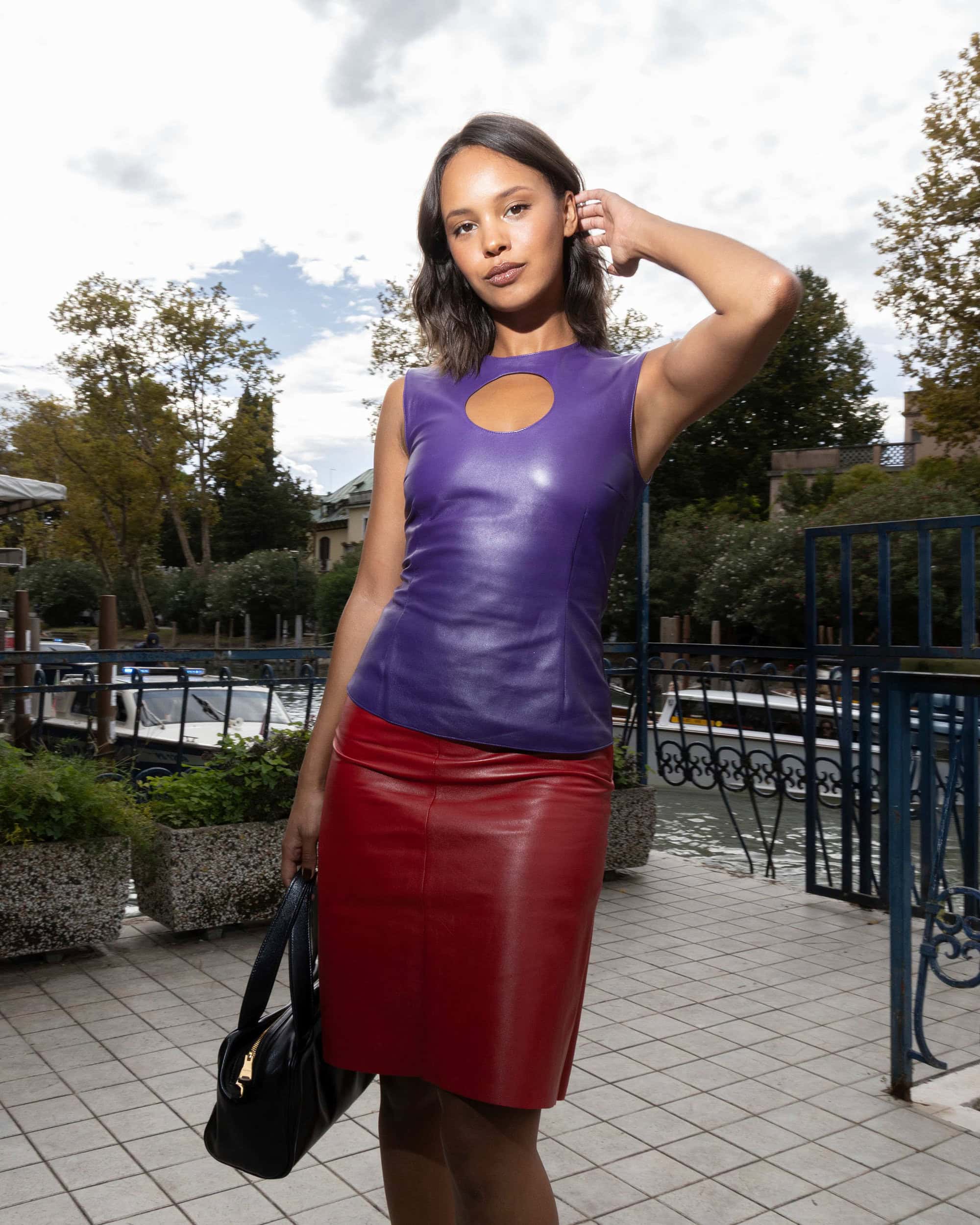
Diop describes the short as both tribute and radical act. “Through the joy of seeing Black women fill the streets of New York City, I feel myself exist,” she says. “Making this film was a form of self-celebration, a gesture of repair.”
The final segment of the film features Meshell Ndegeocello’s Thus Sayeth the Lorde, a track that channels the defiant legacy of Audre Lorde through slam poetry and sonic intensity. “This is an essential film to make at this time,” Diop notes, pointing to the global rise of racism, authoritarianism, and cultural erasure. “There is calm in the way this short film proceeds, which is a political gesture in itself.”
While only 21 minutes in length, Diop considers Fragments for Venus as vital as her feature-length work, including the Cannes and César-winning Saint Omer. “It is my most simple and radical work to date,” she concludes. “And it is there to make people talk.”

